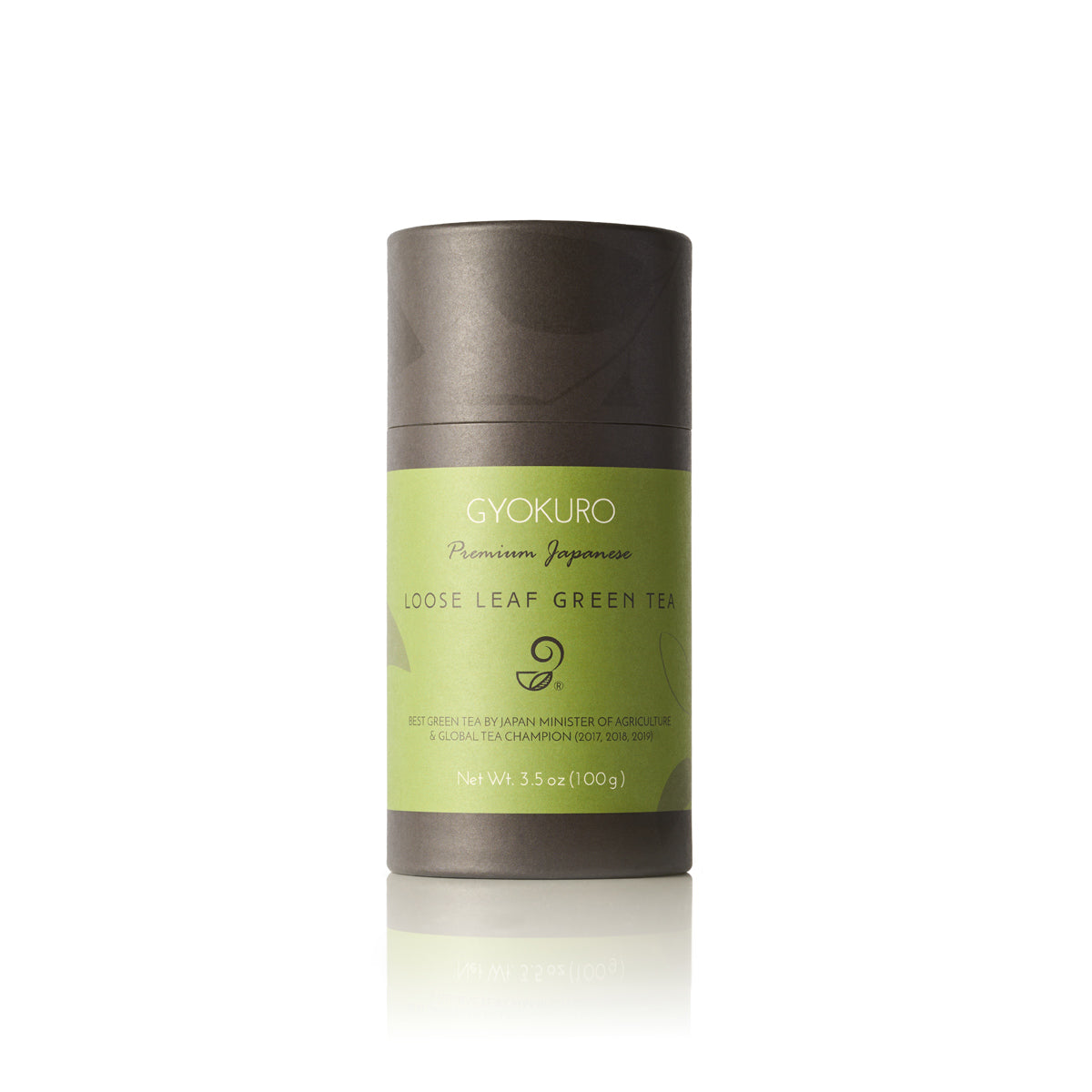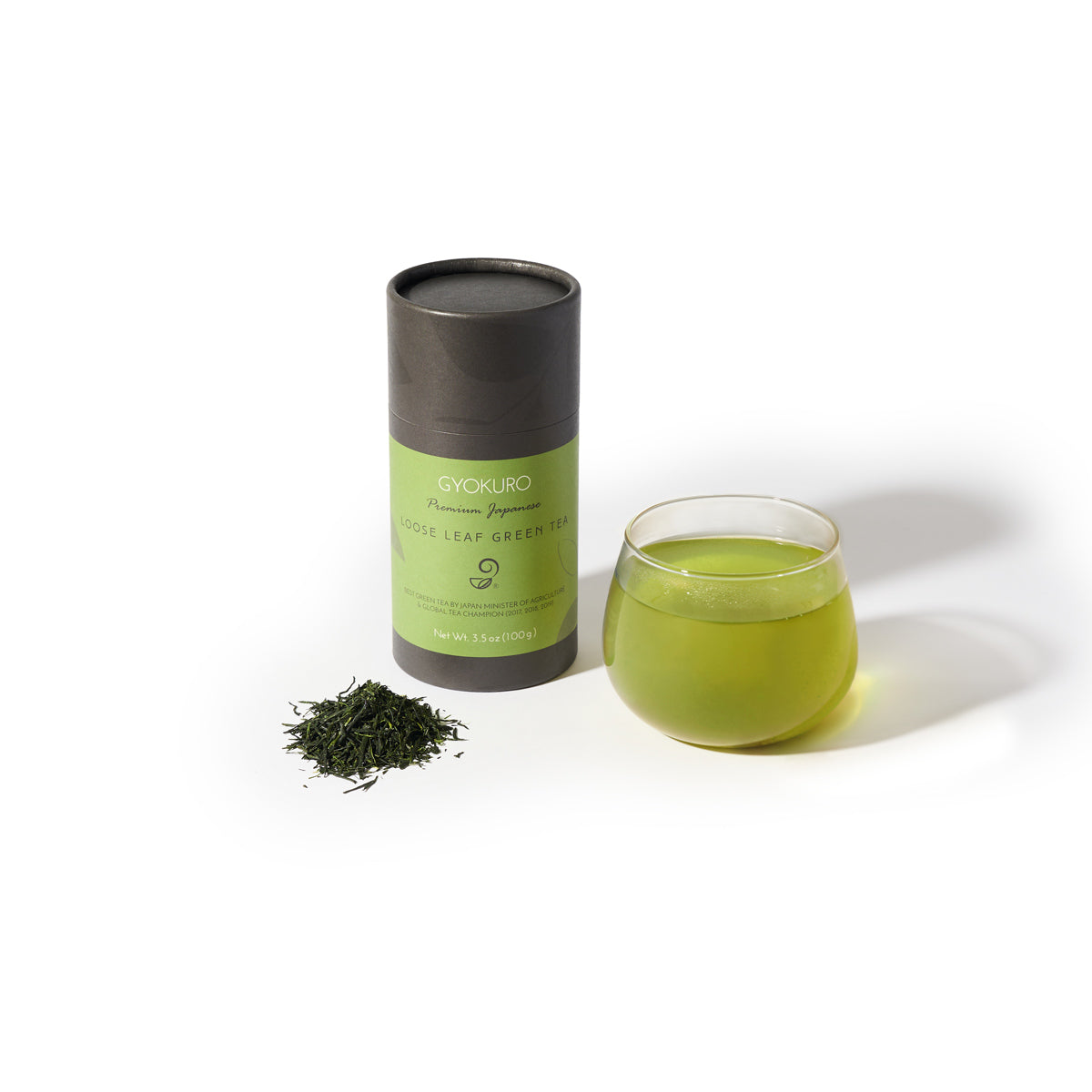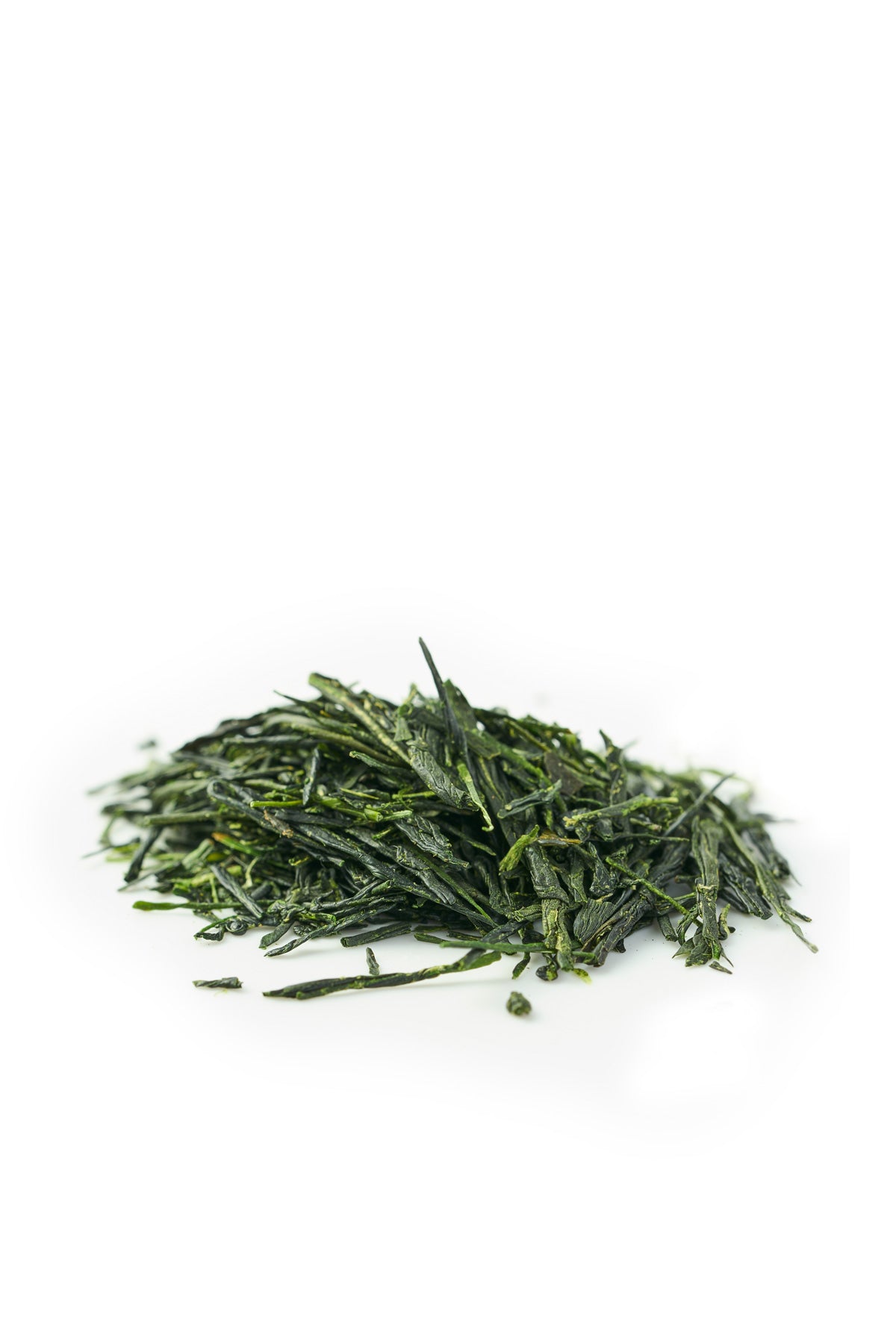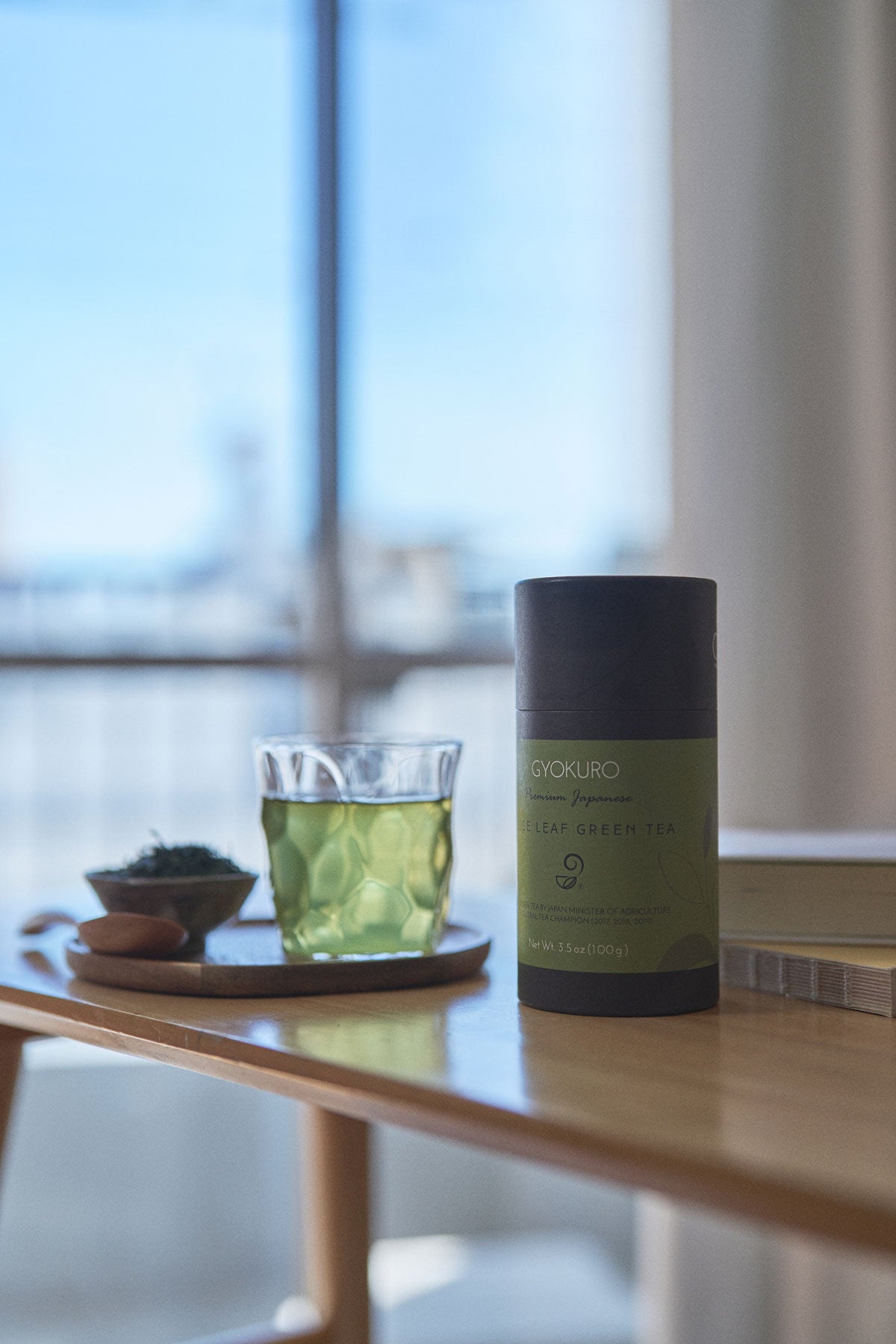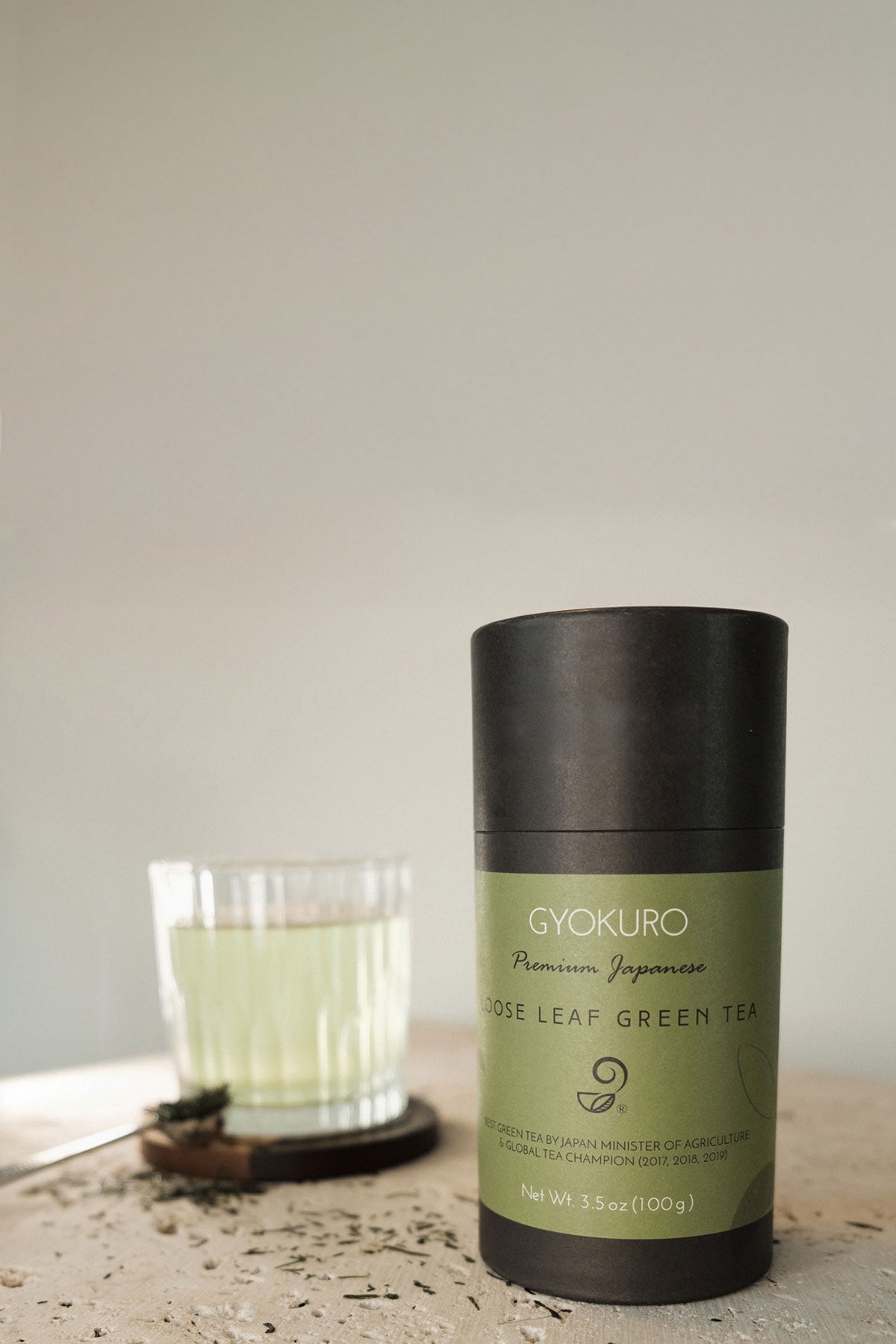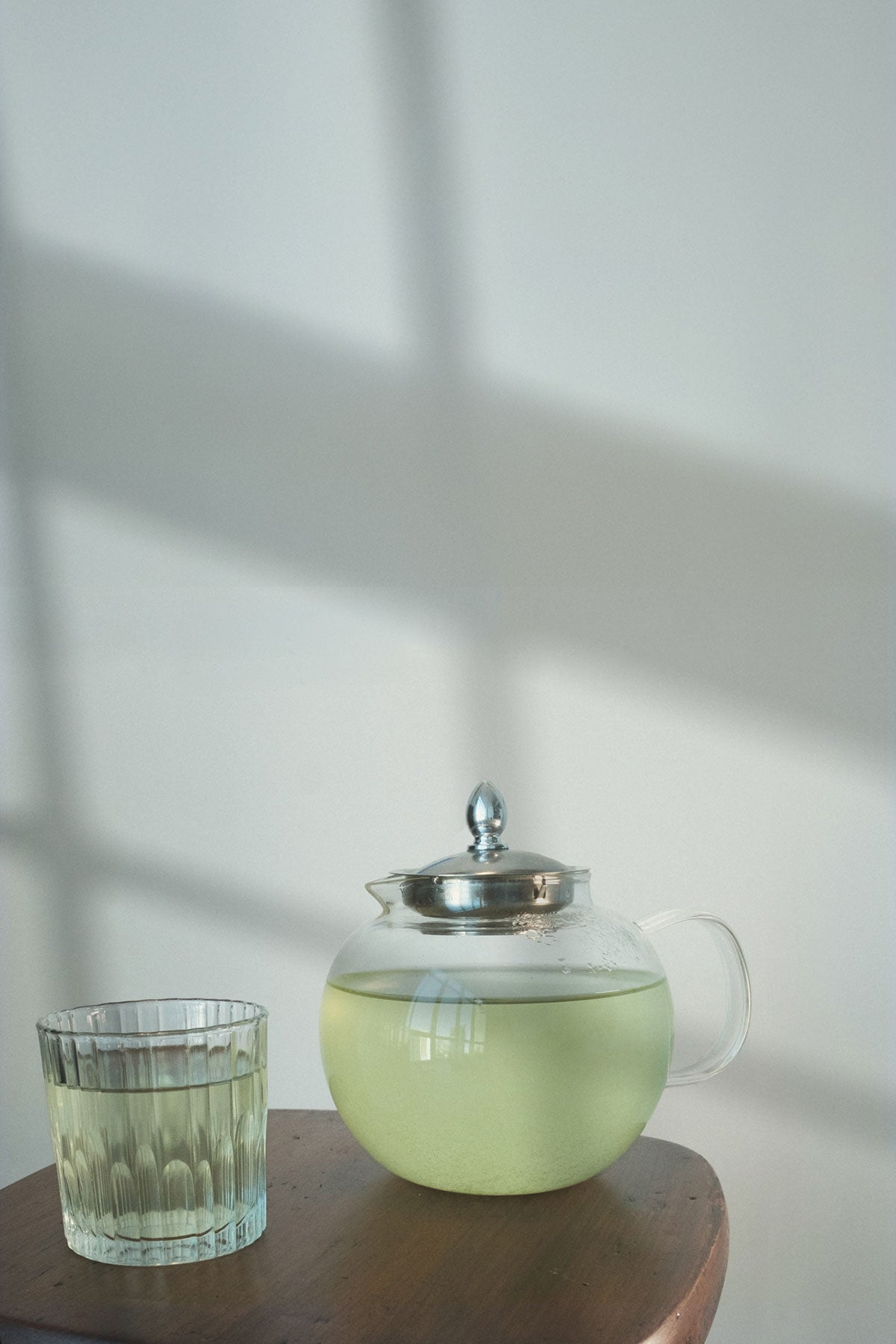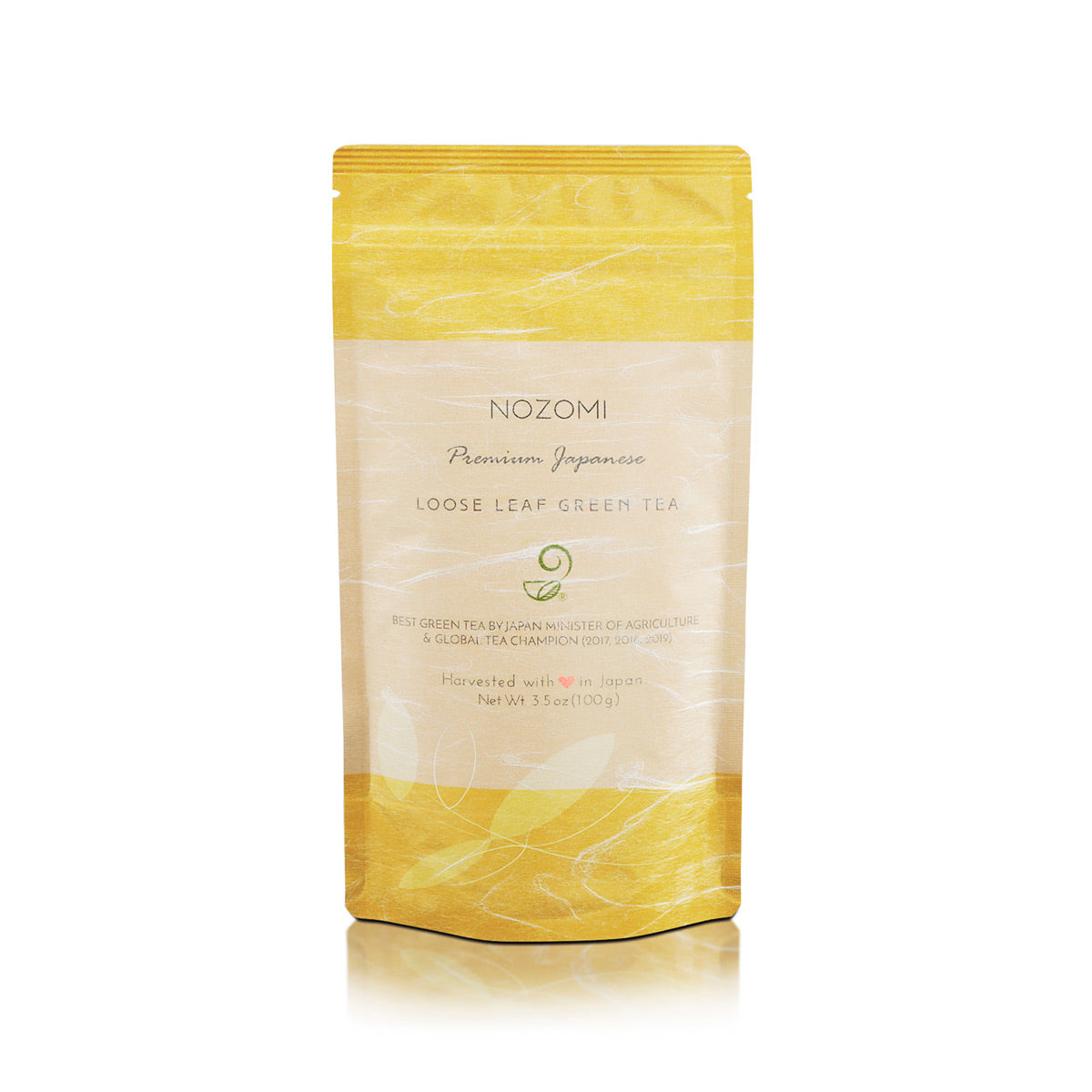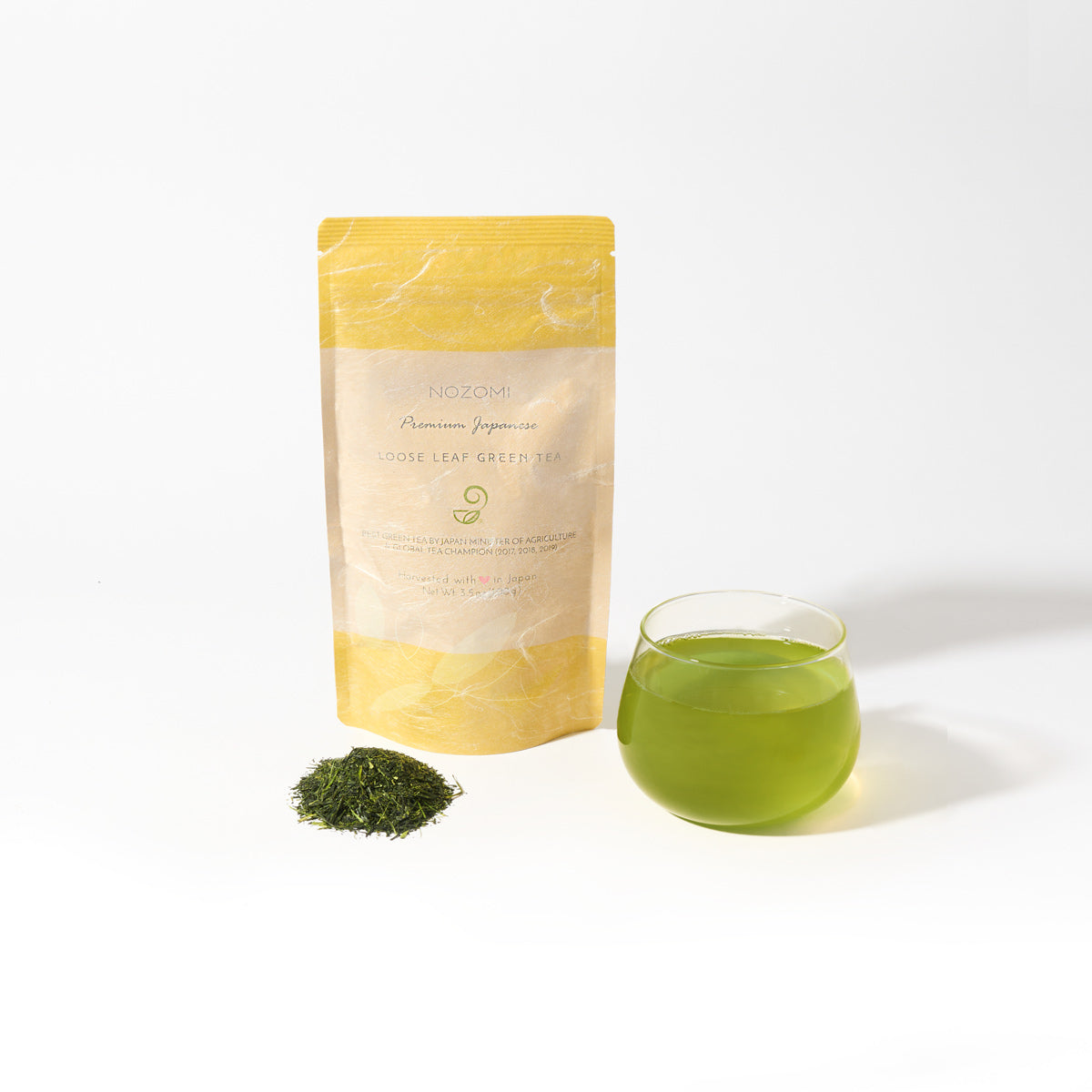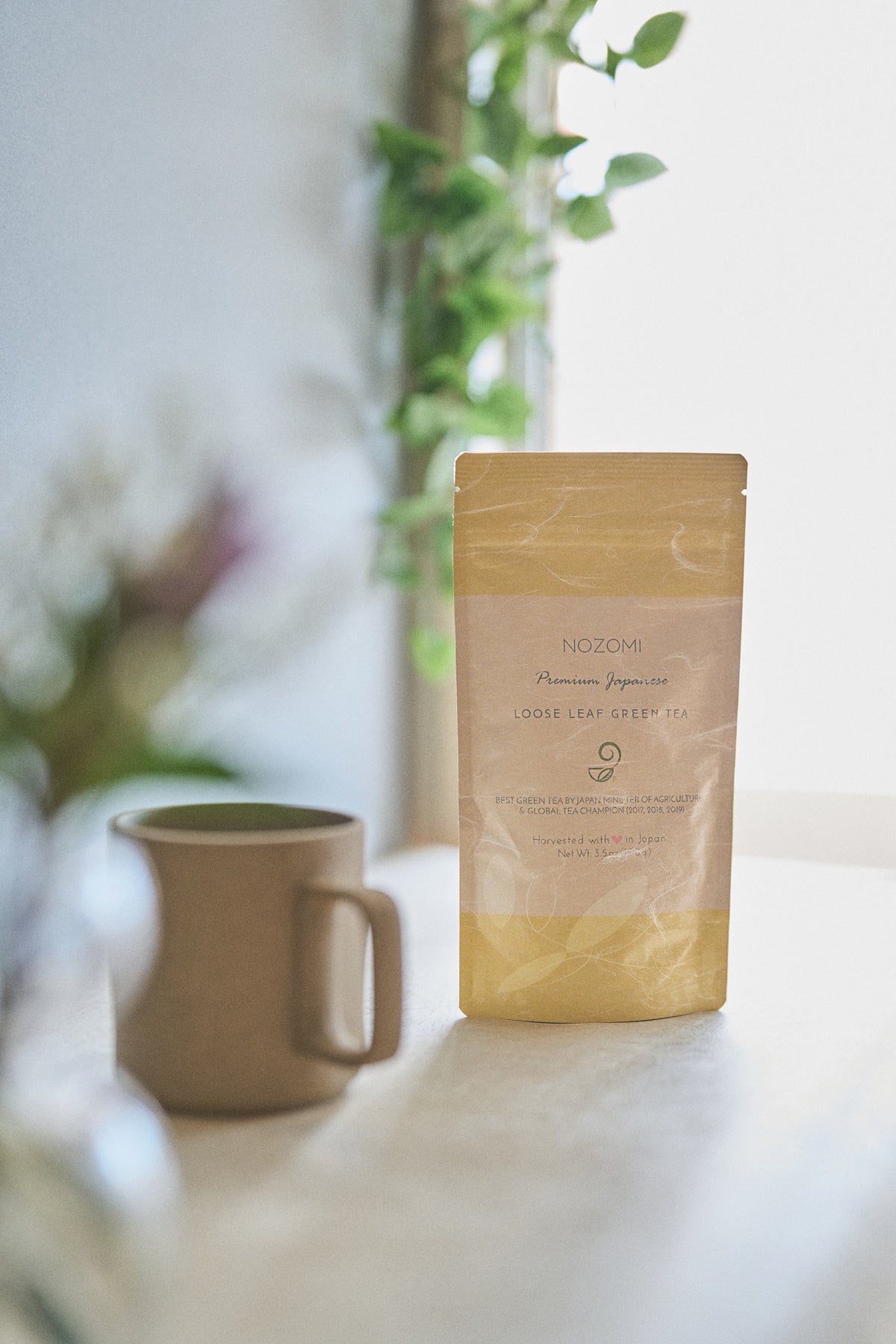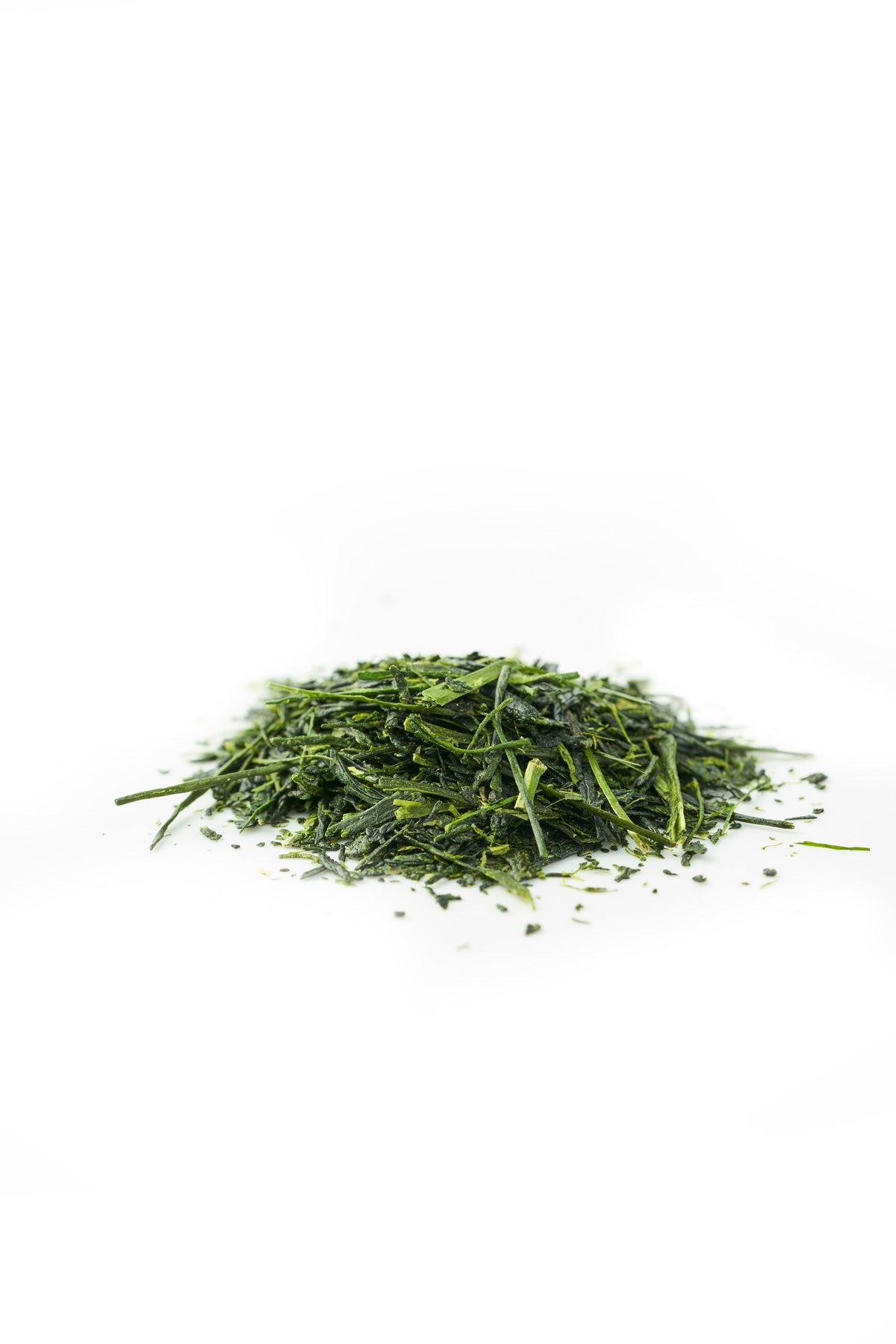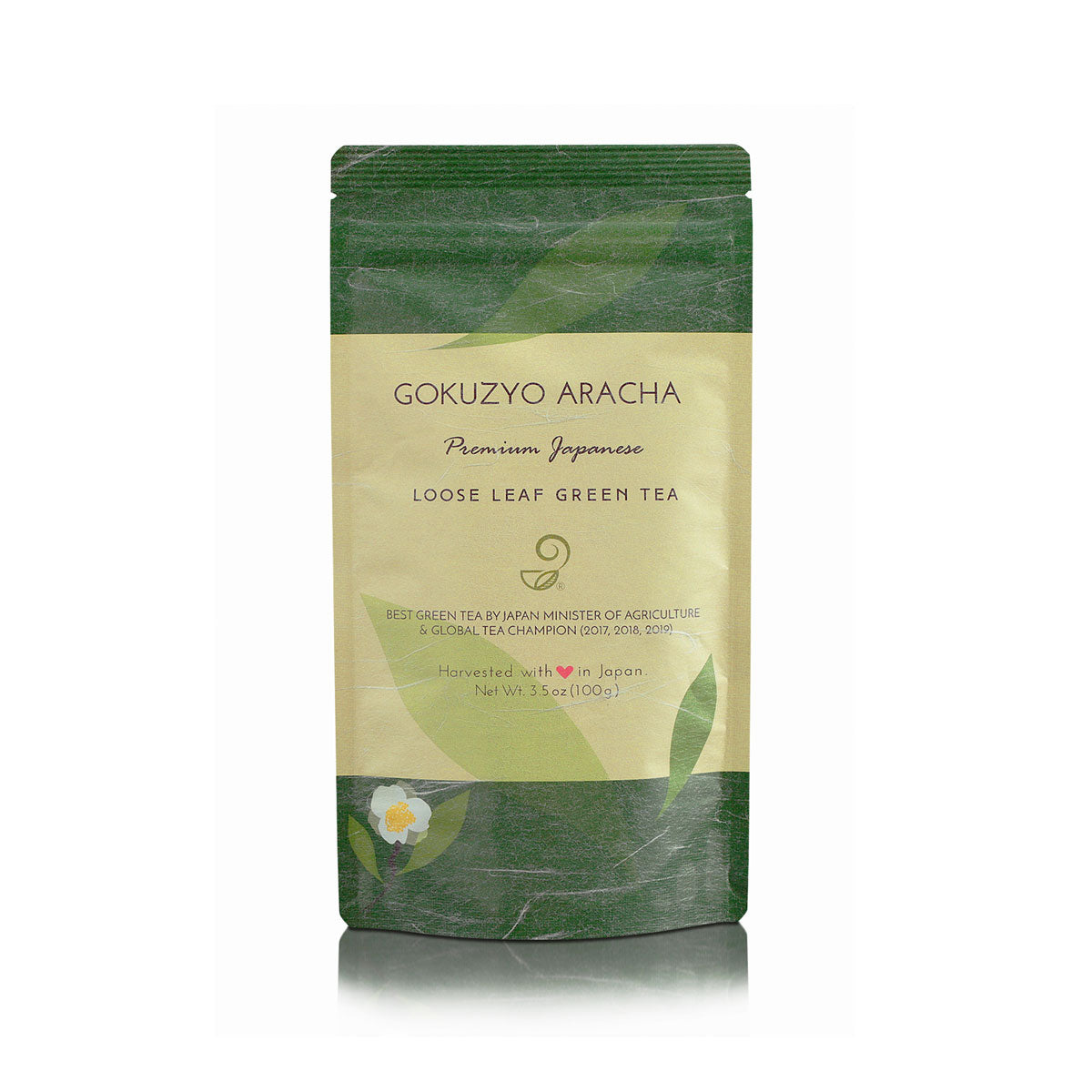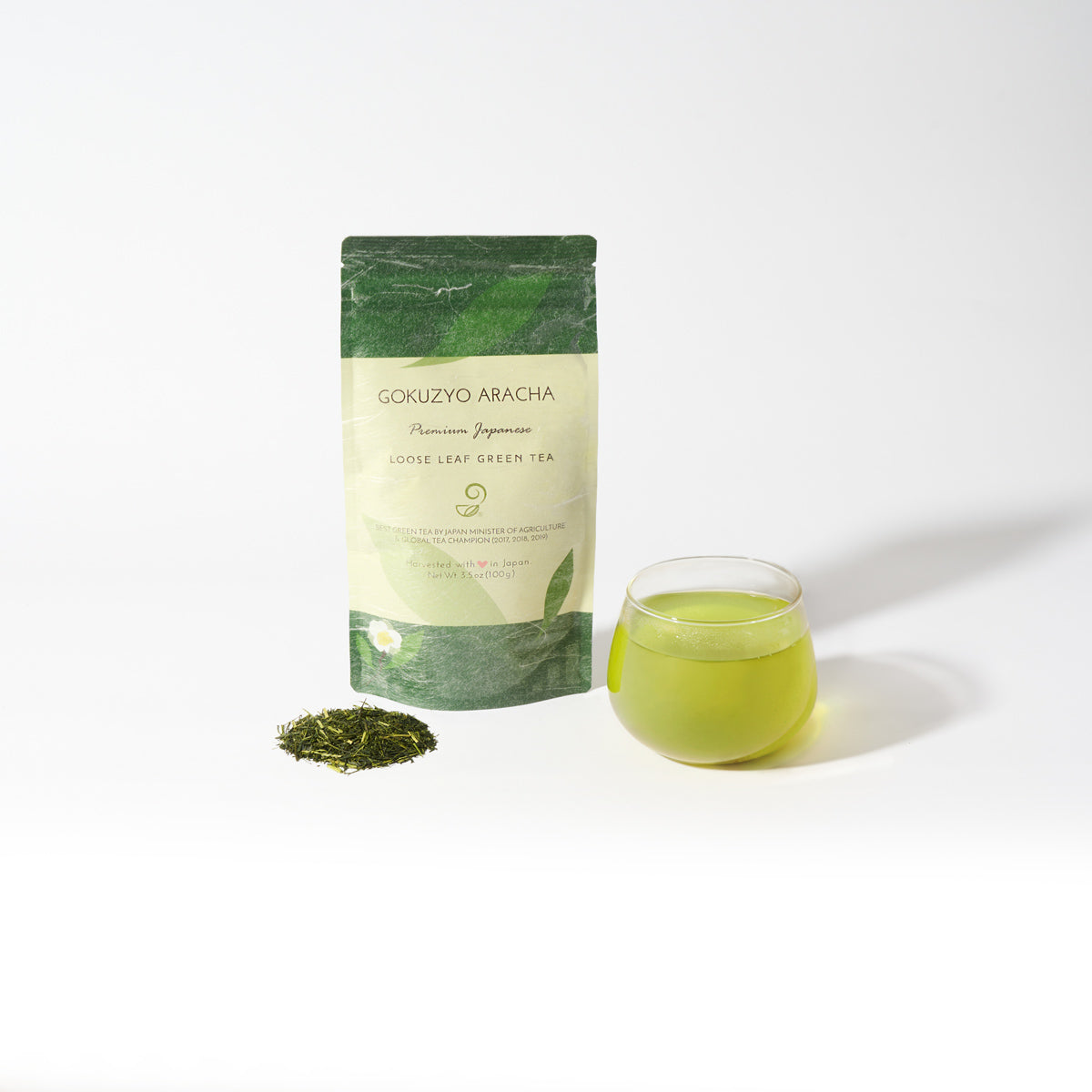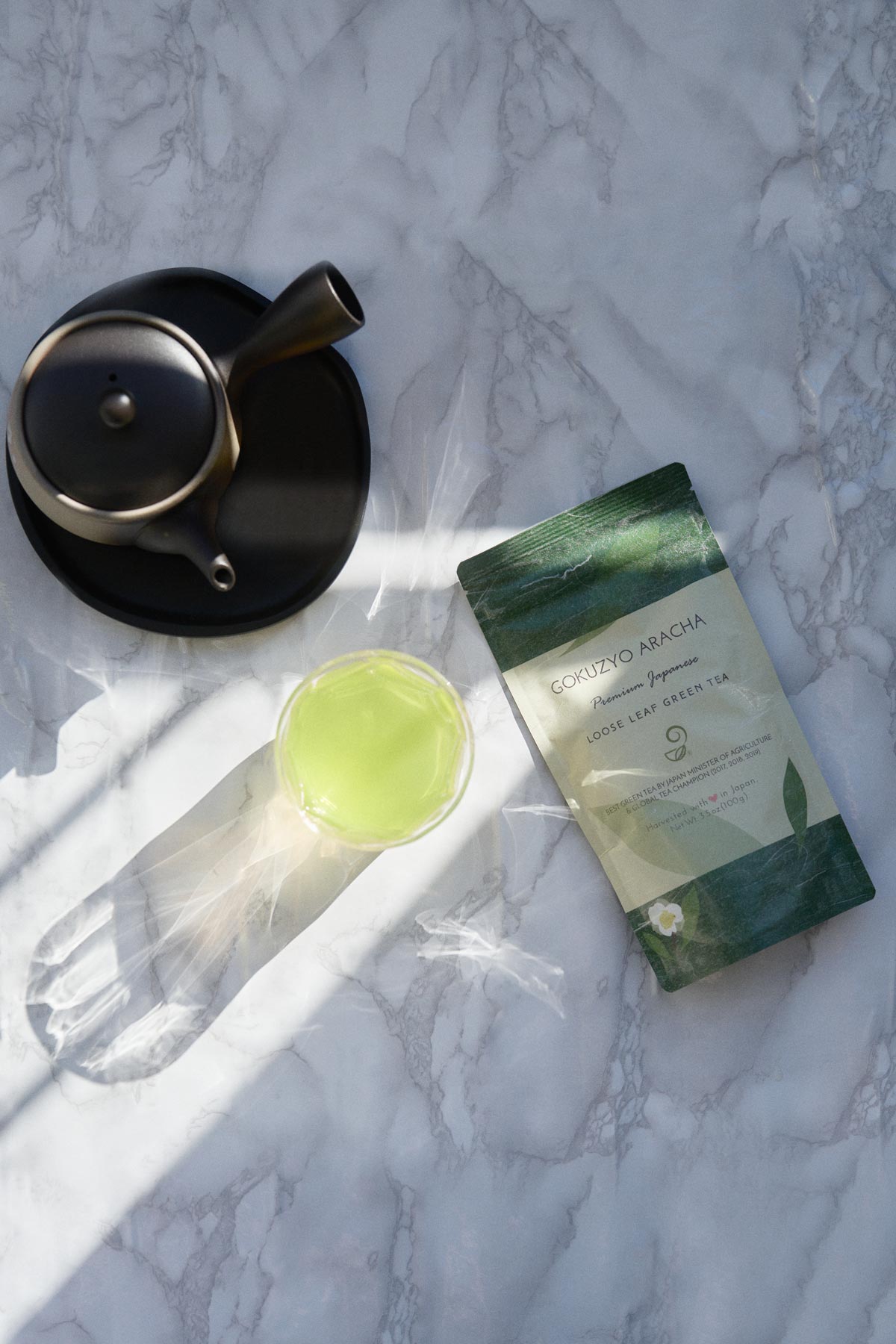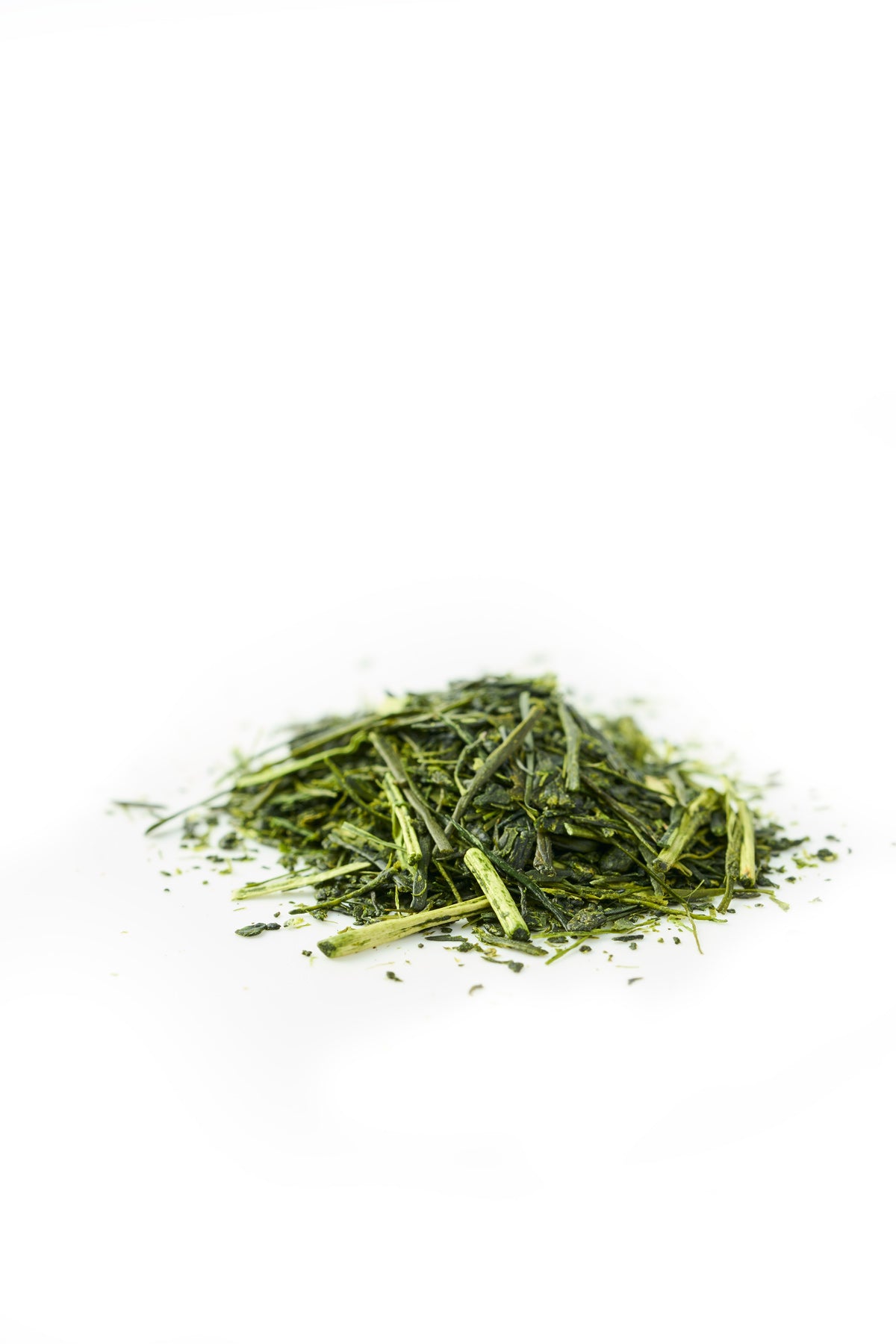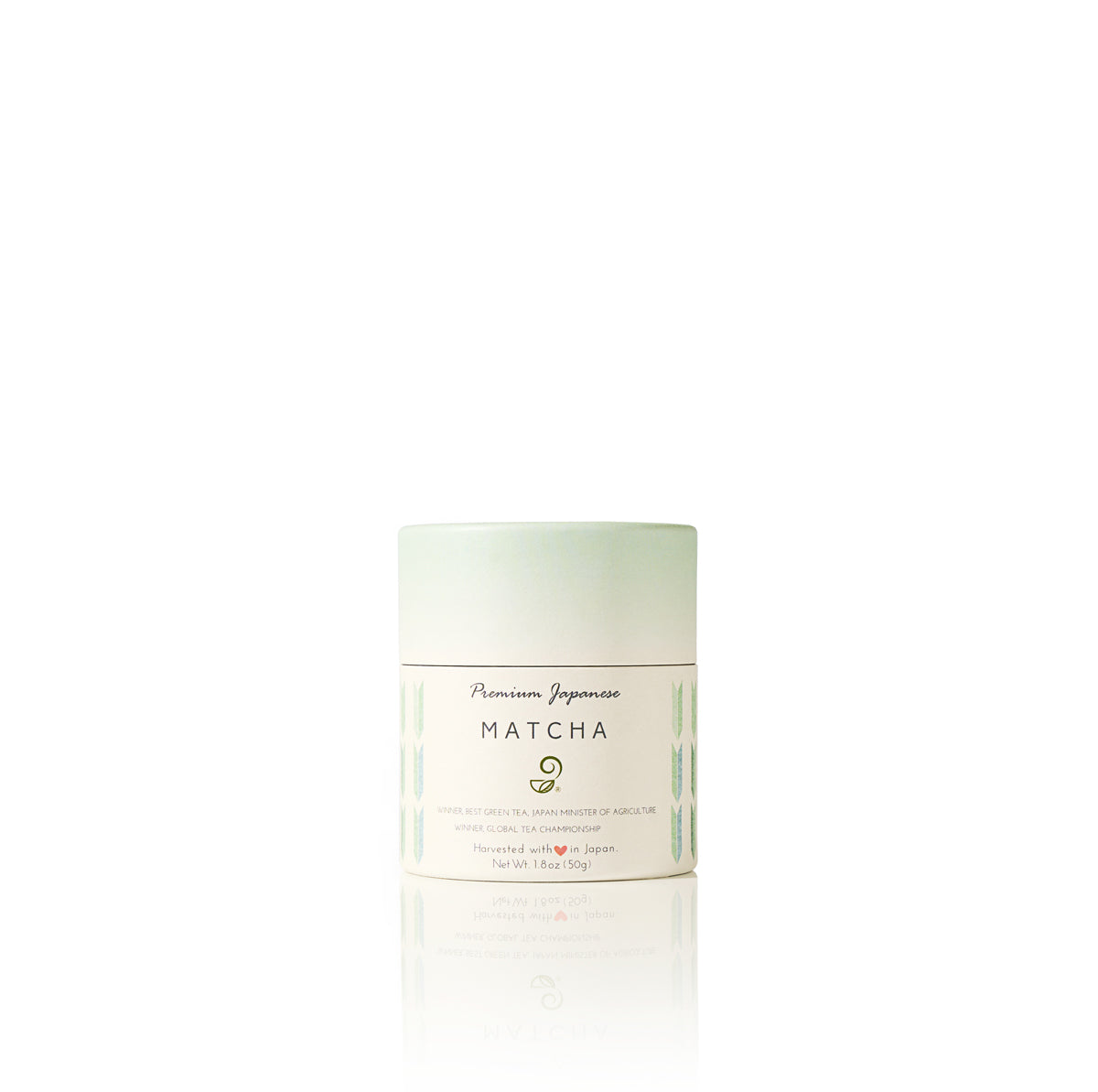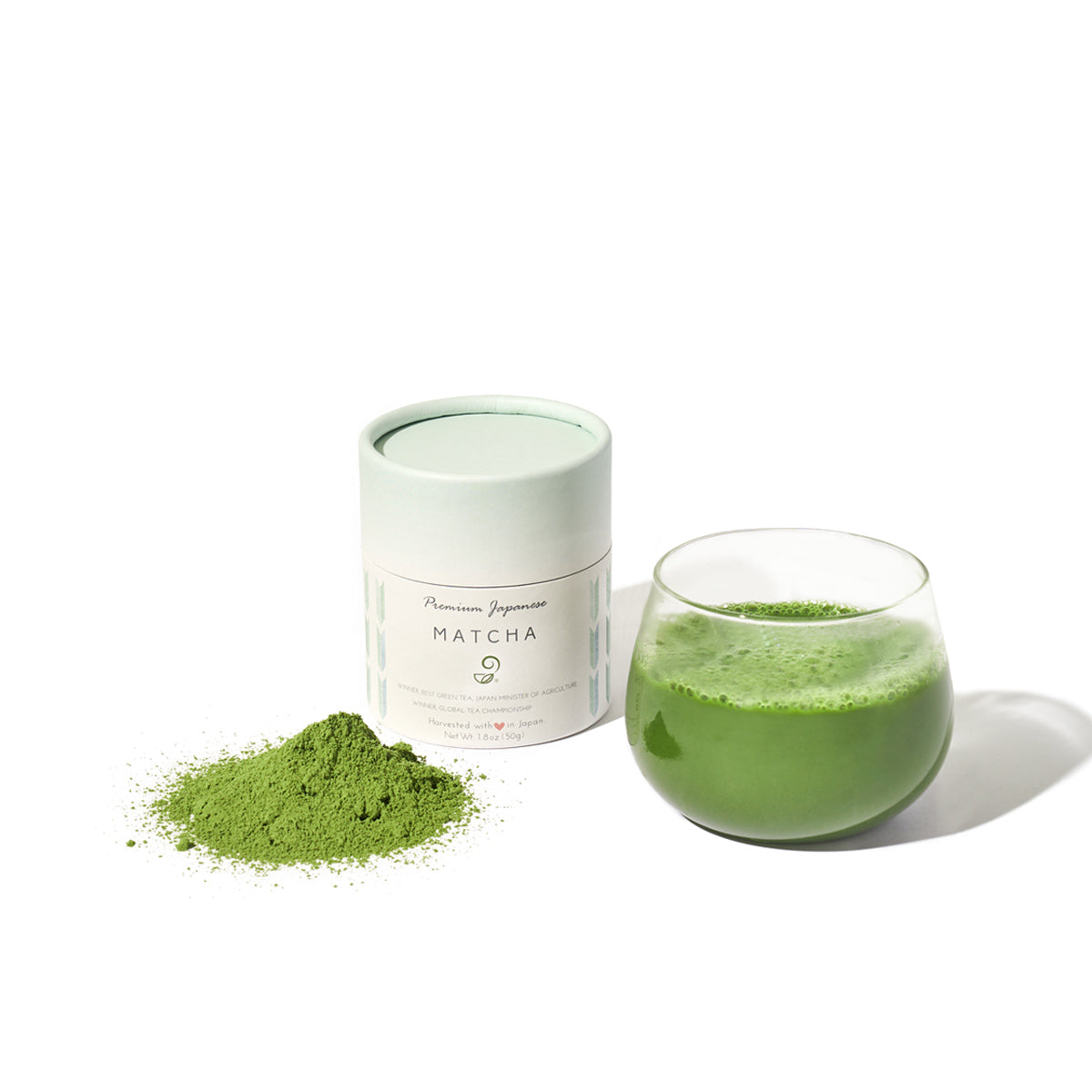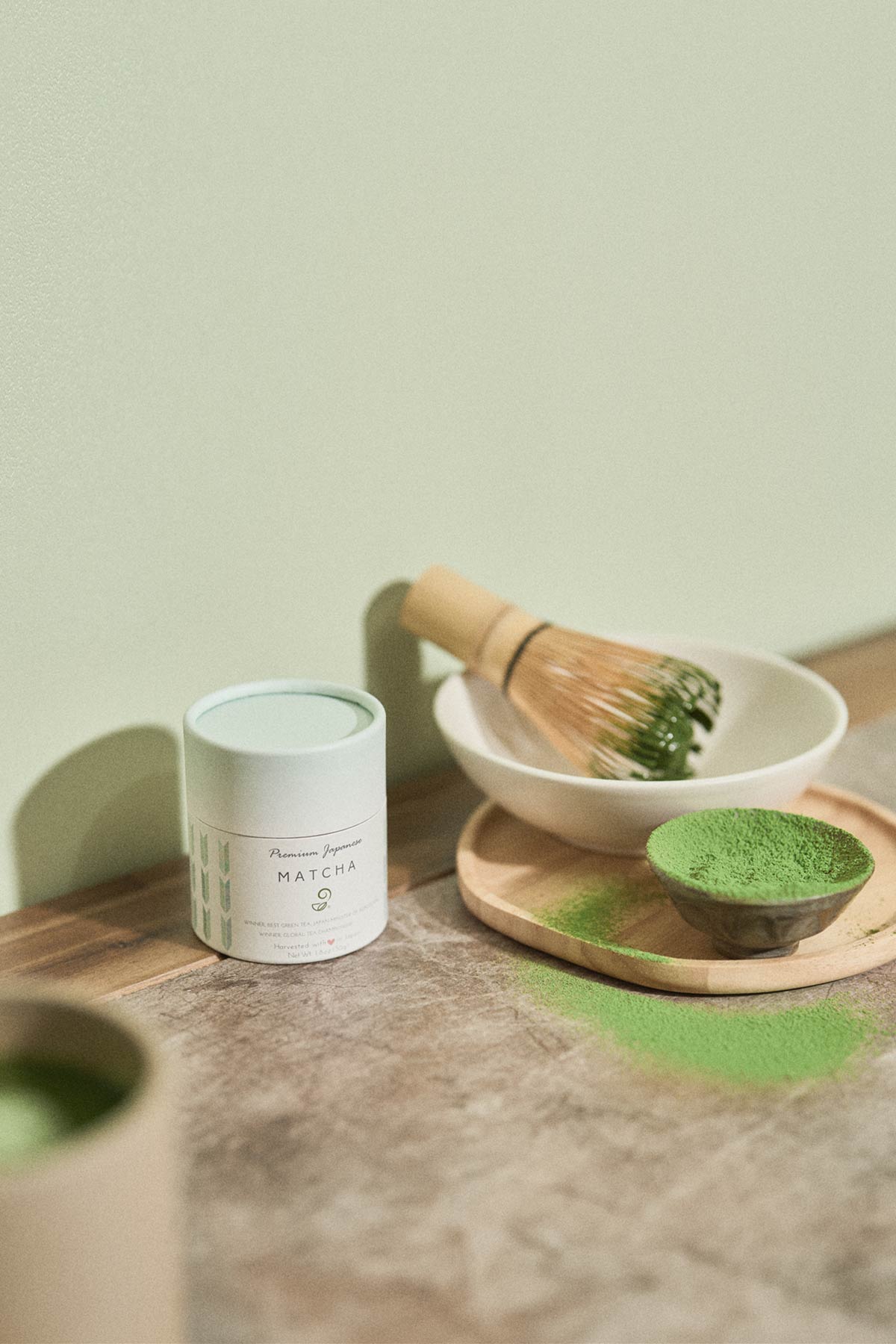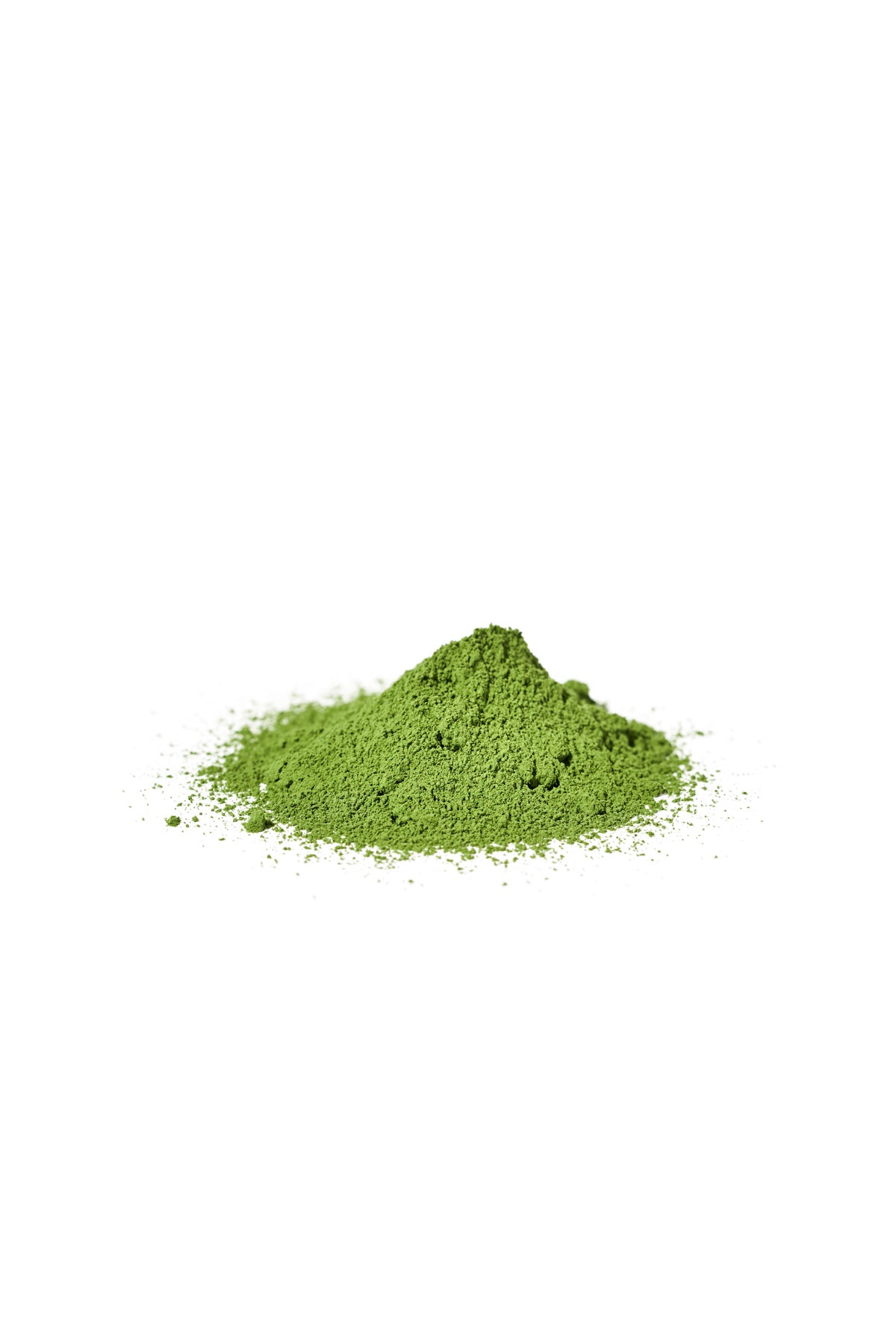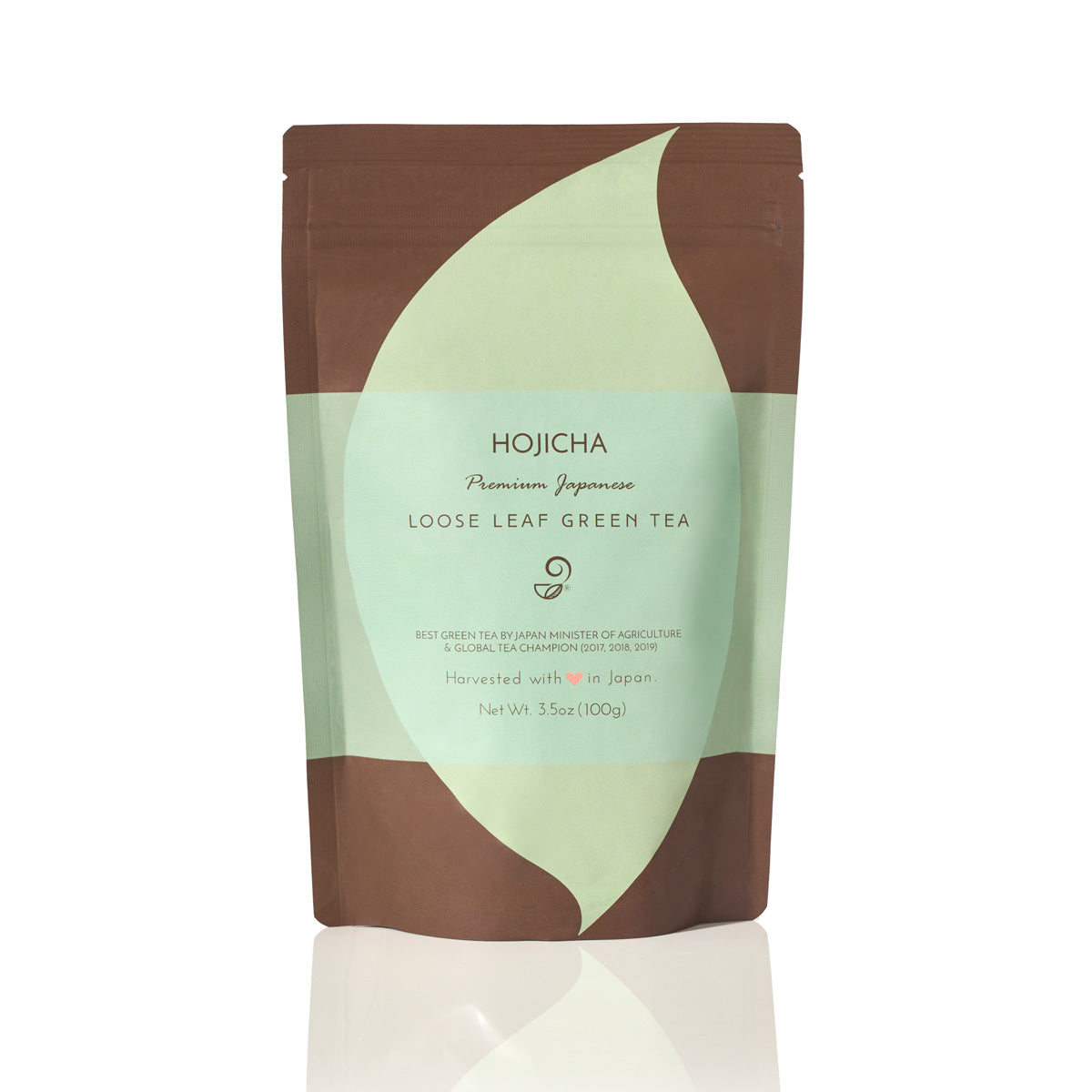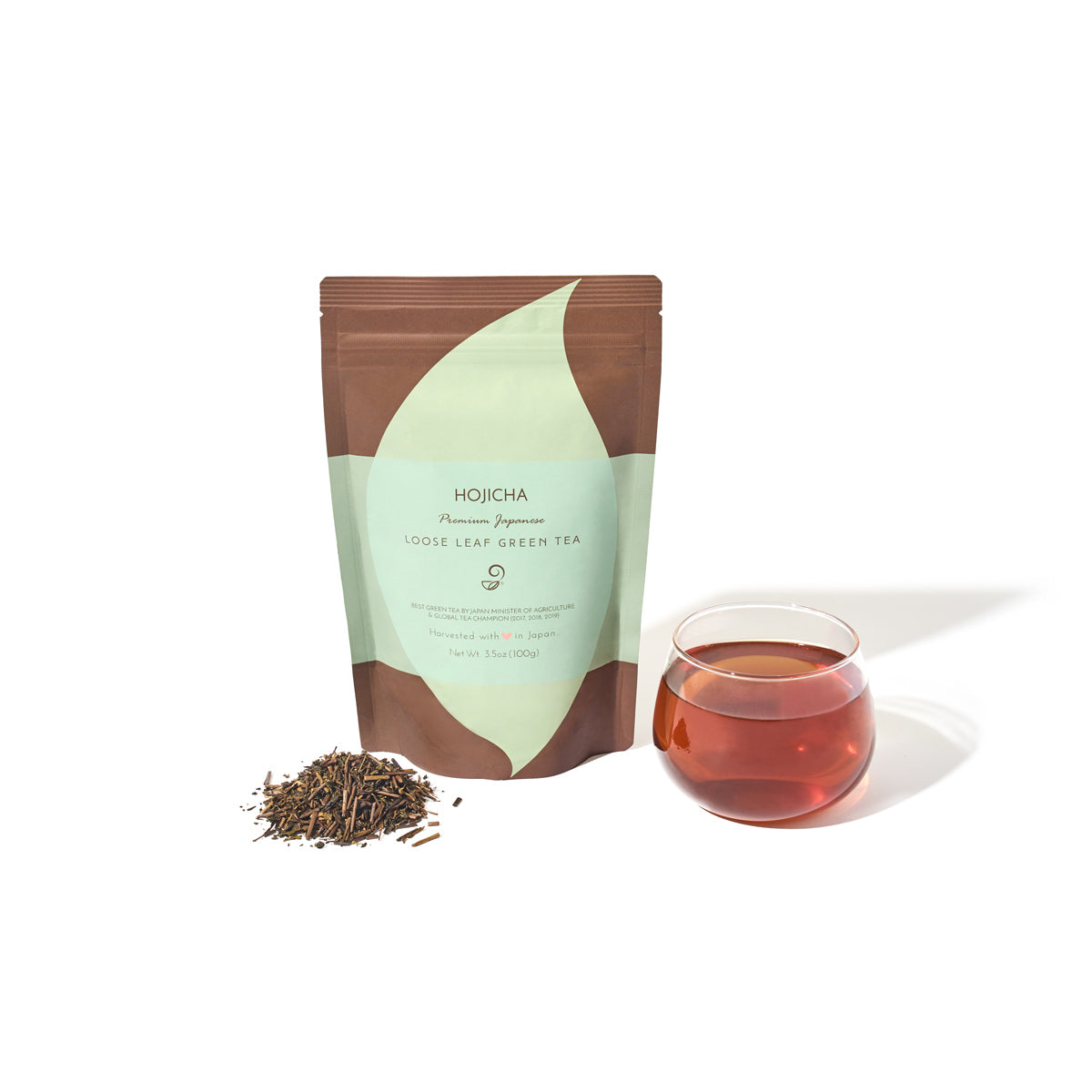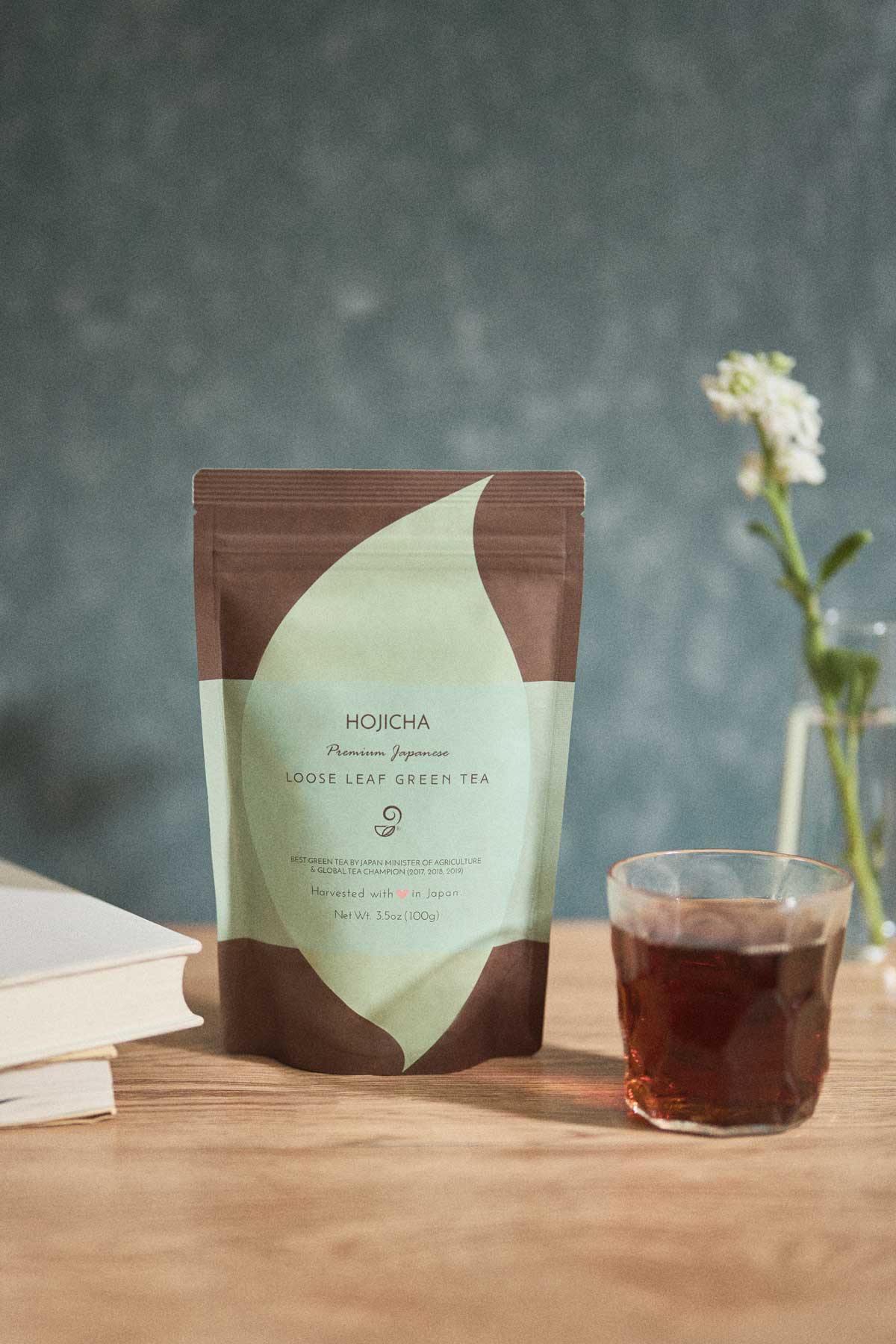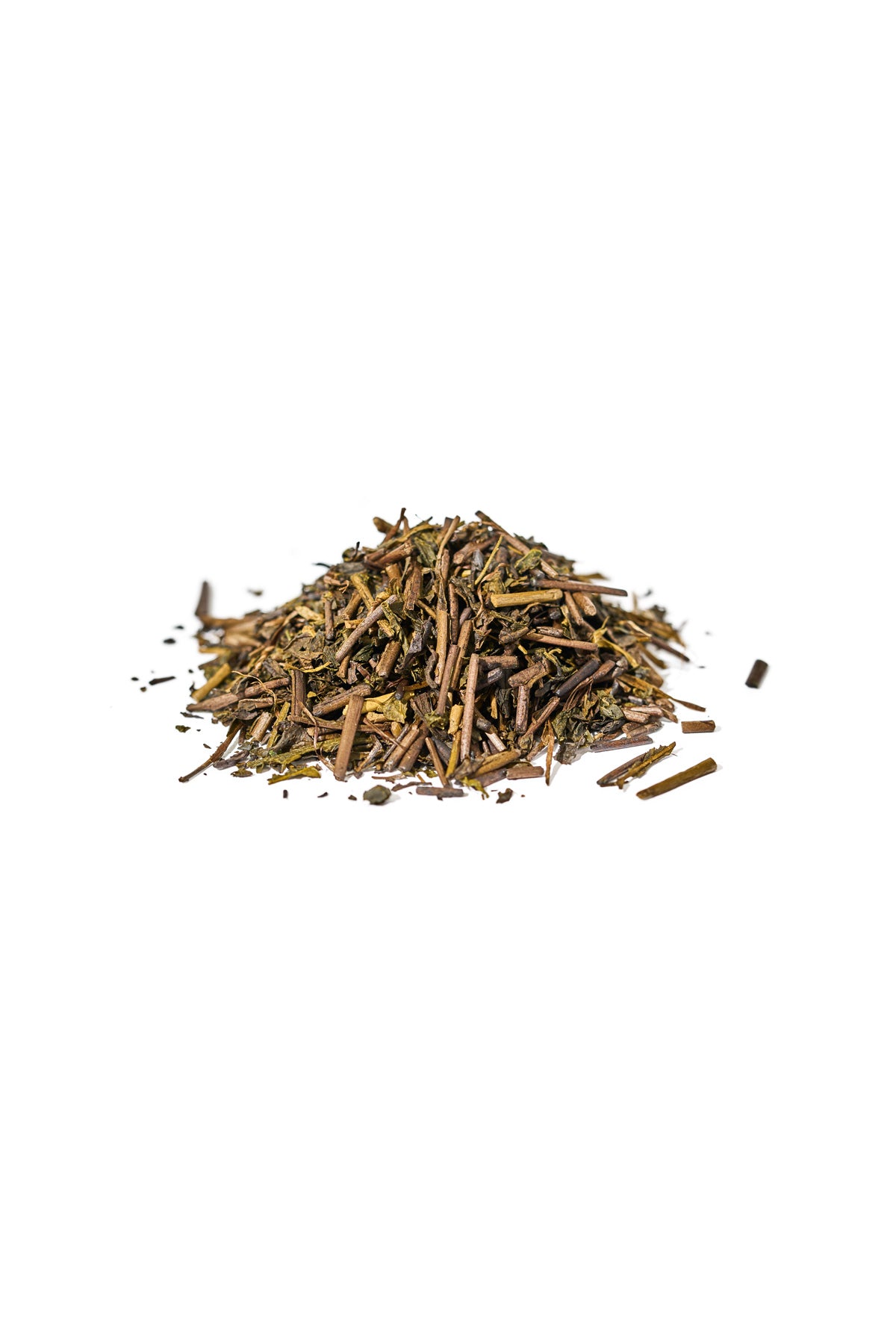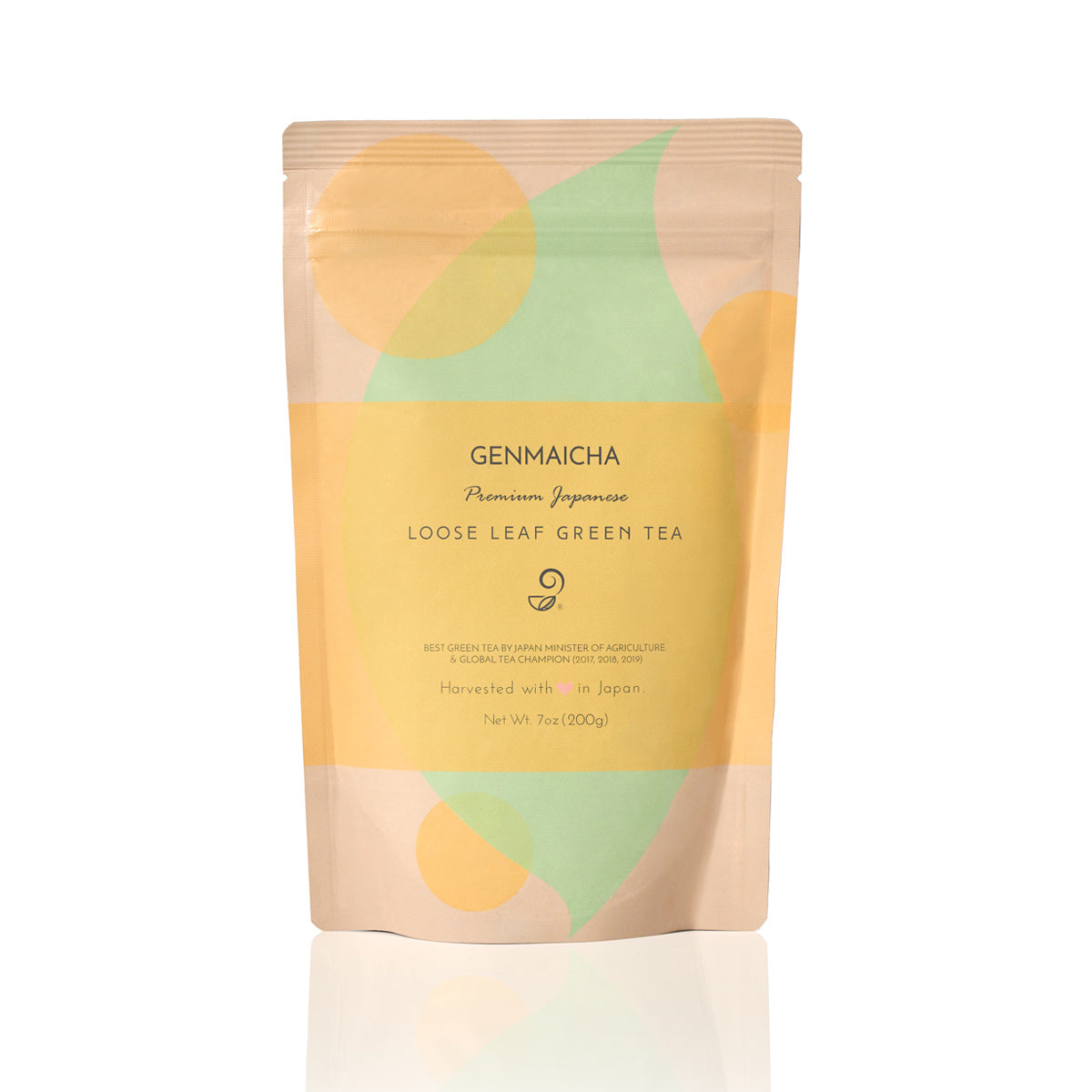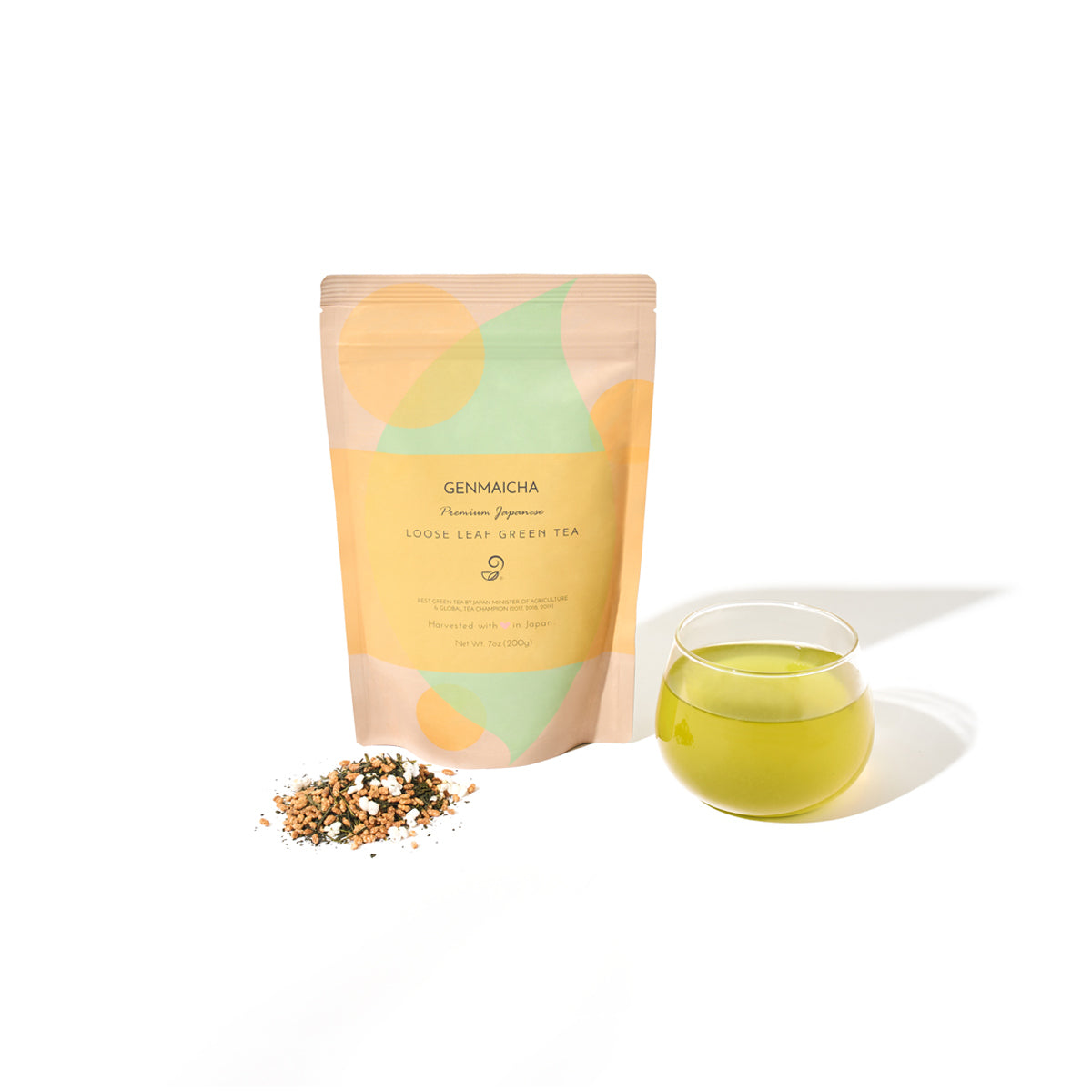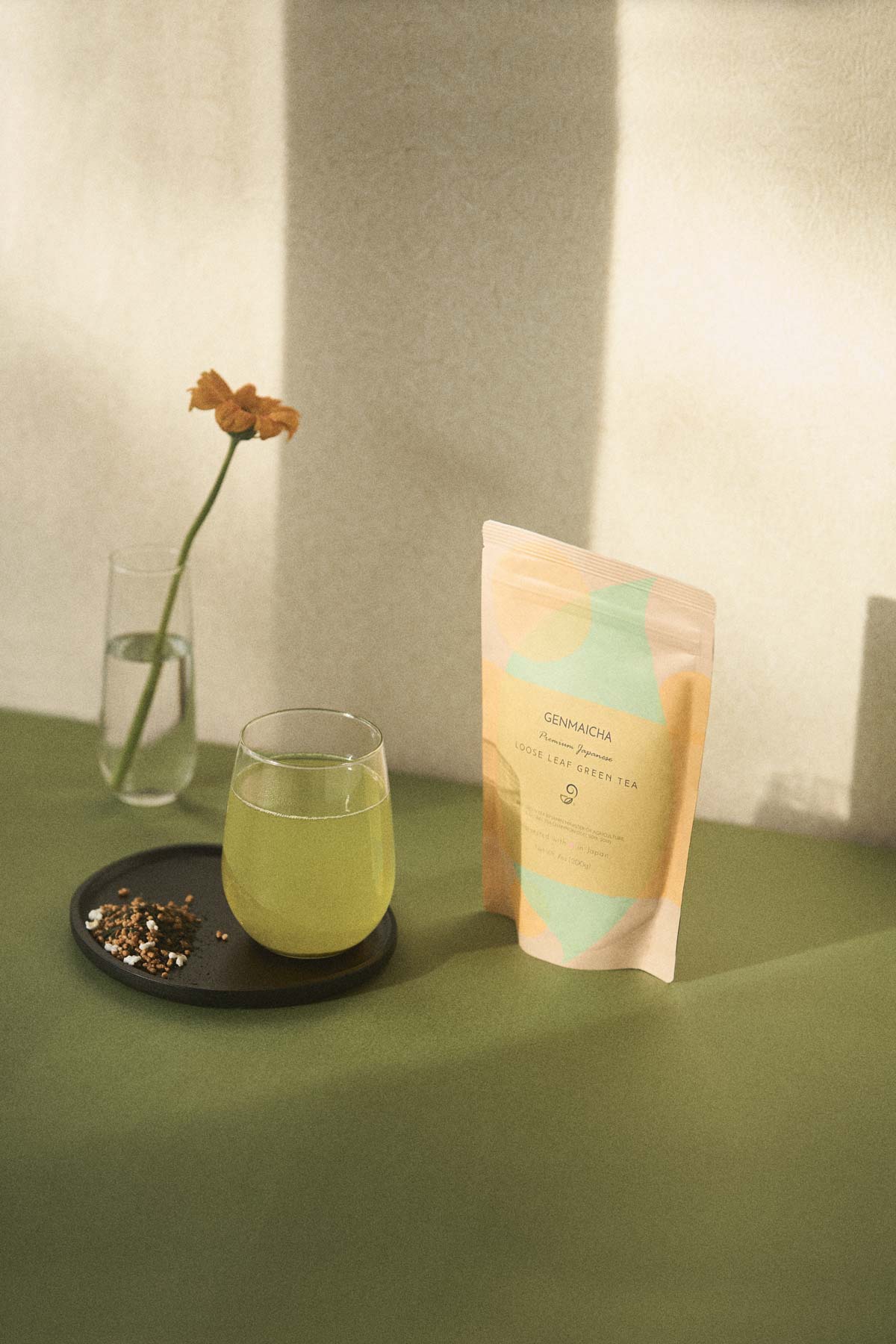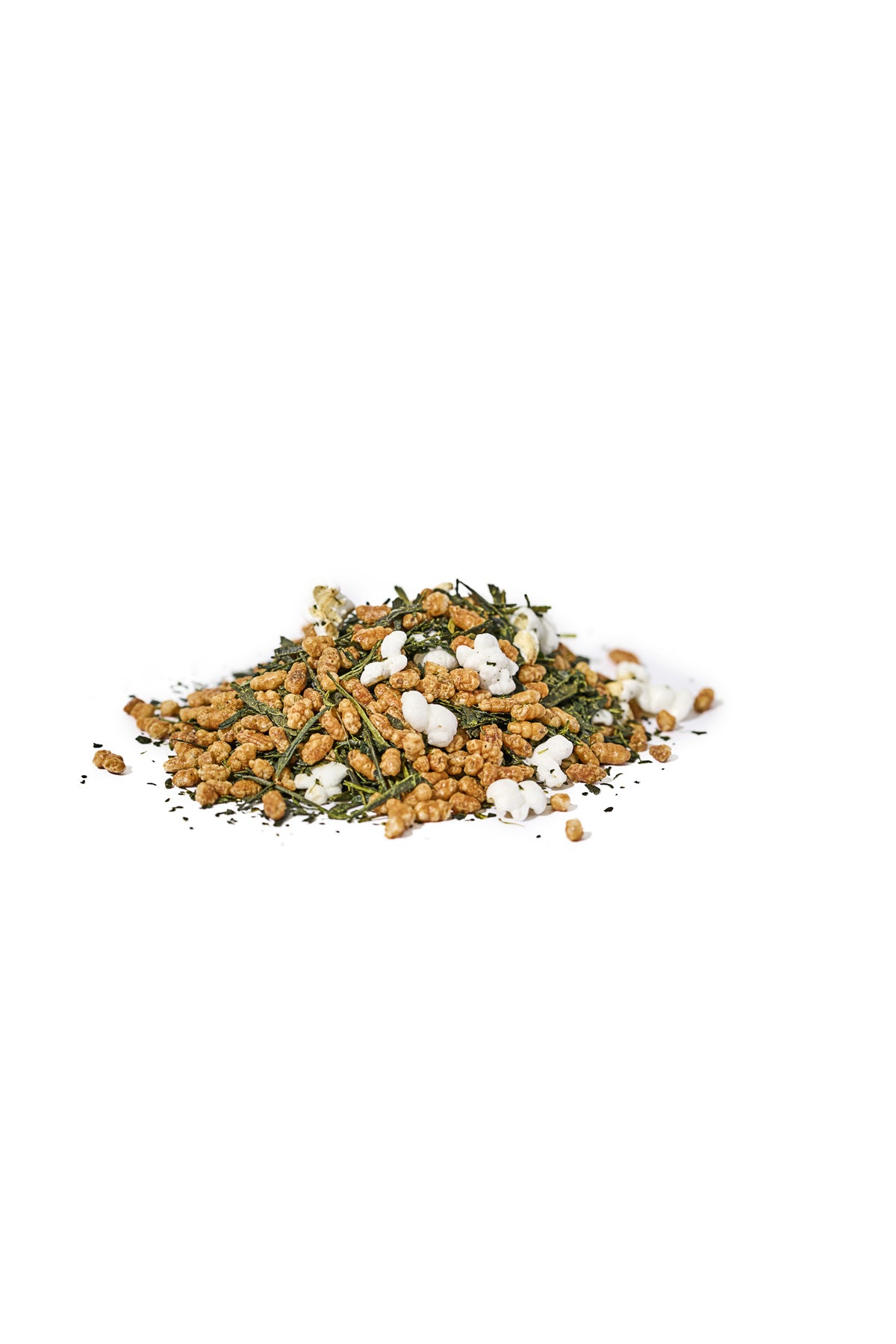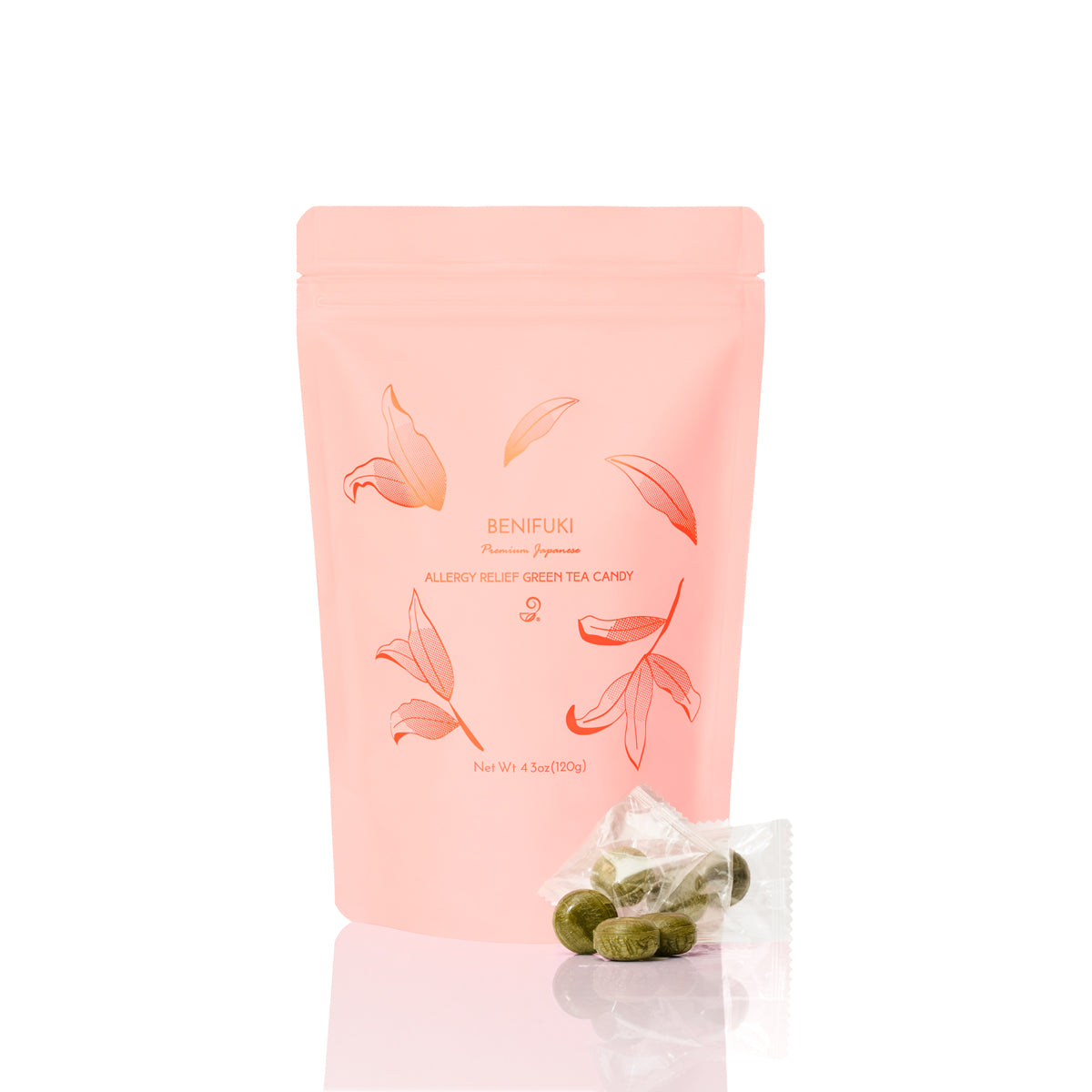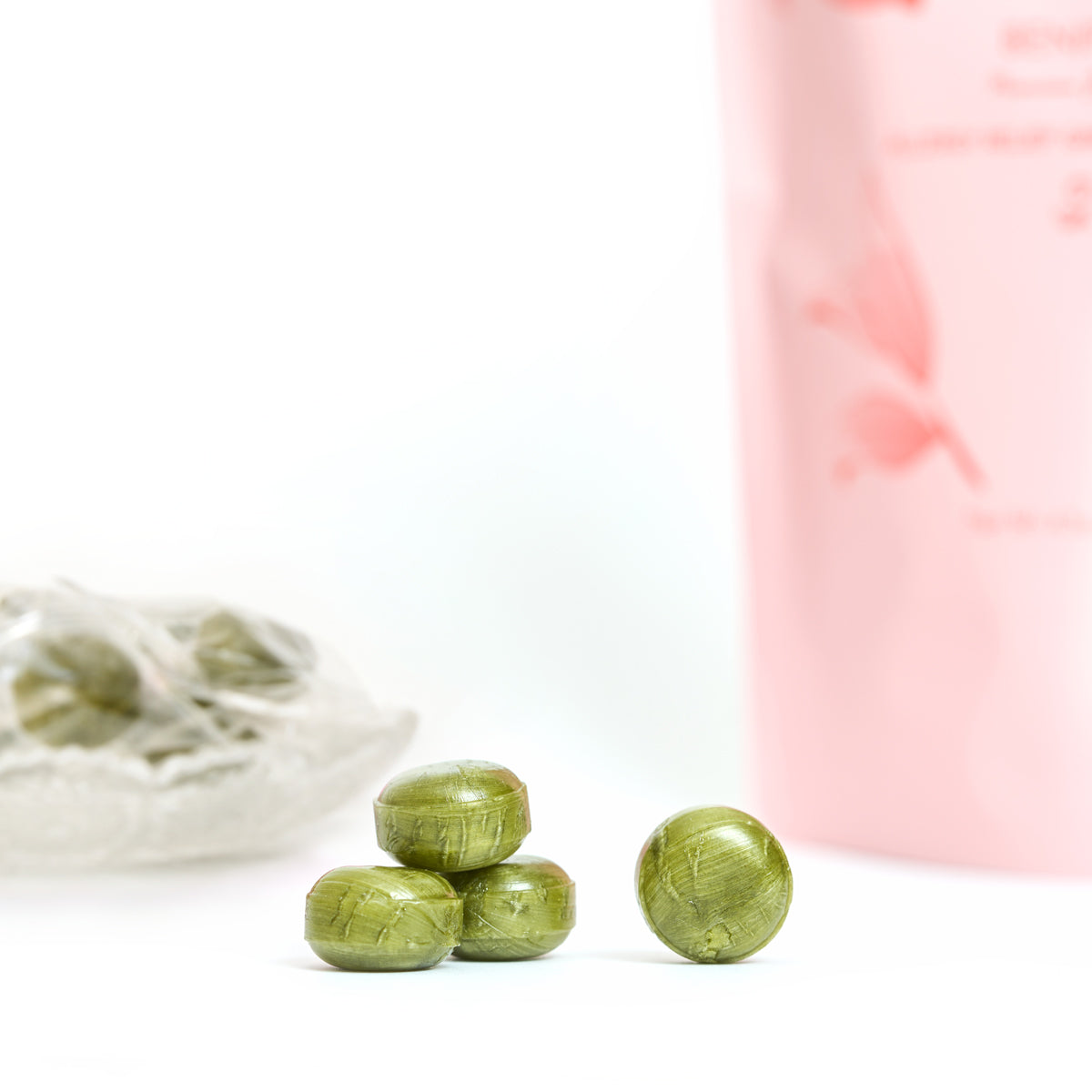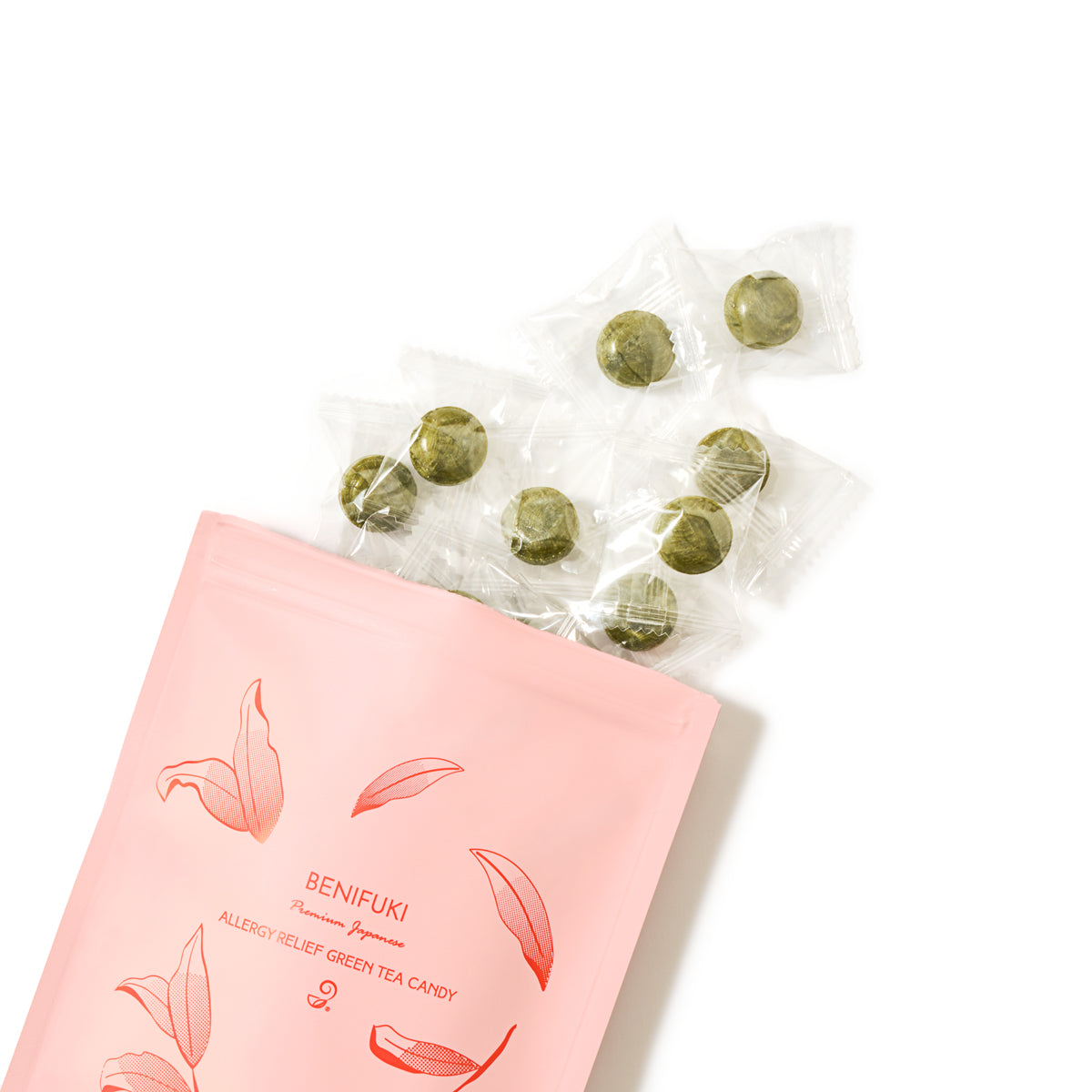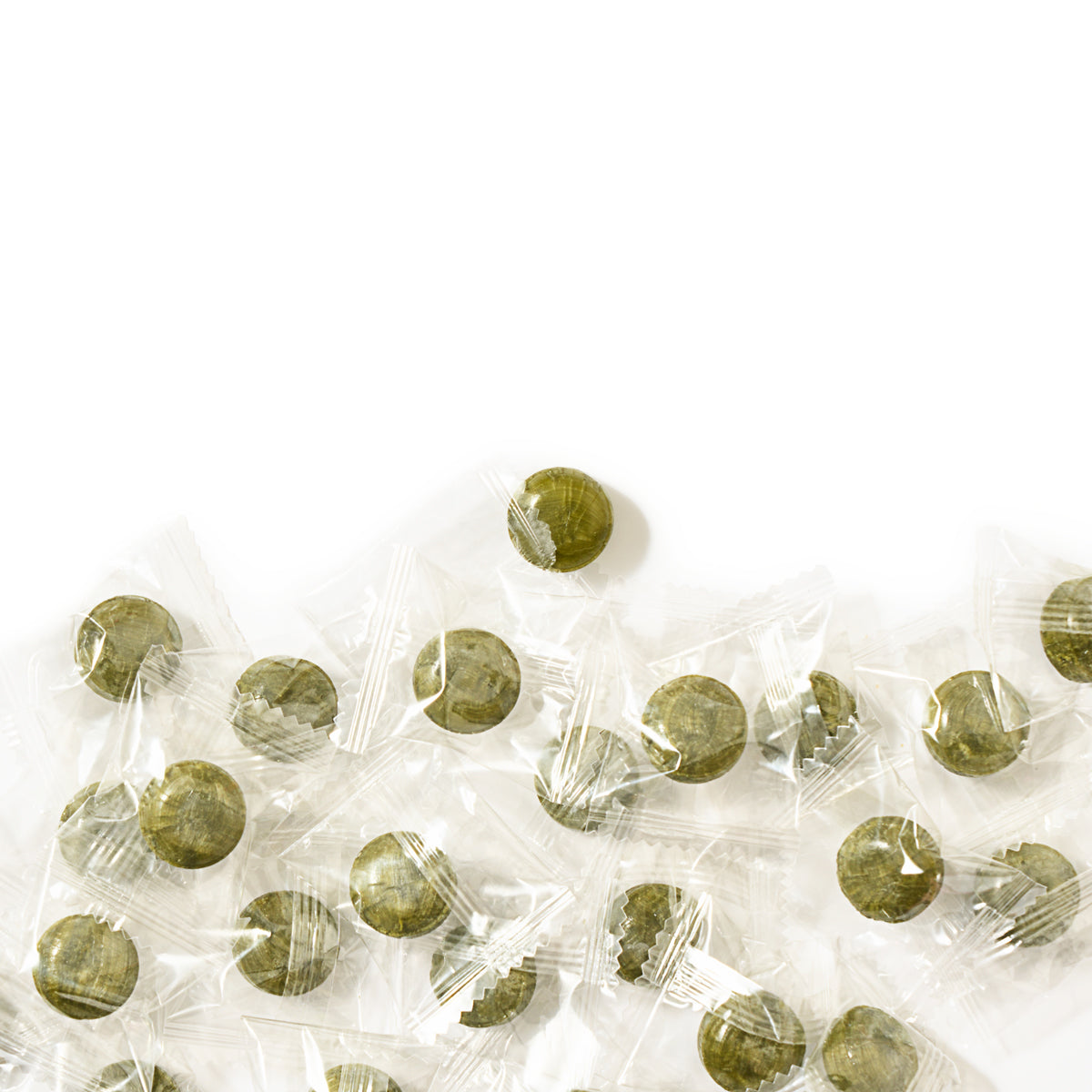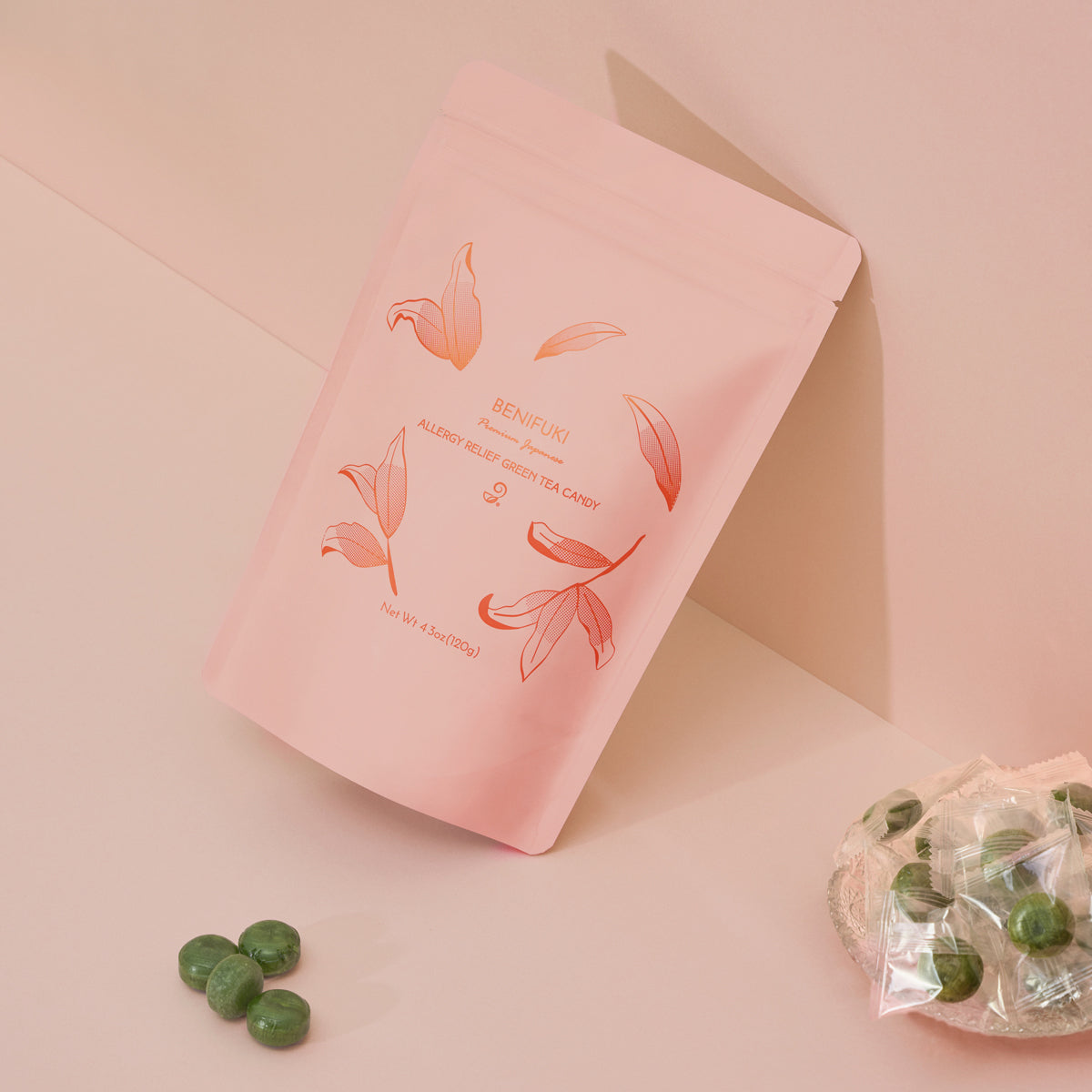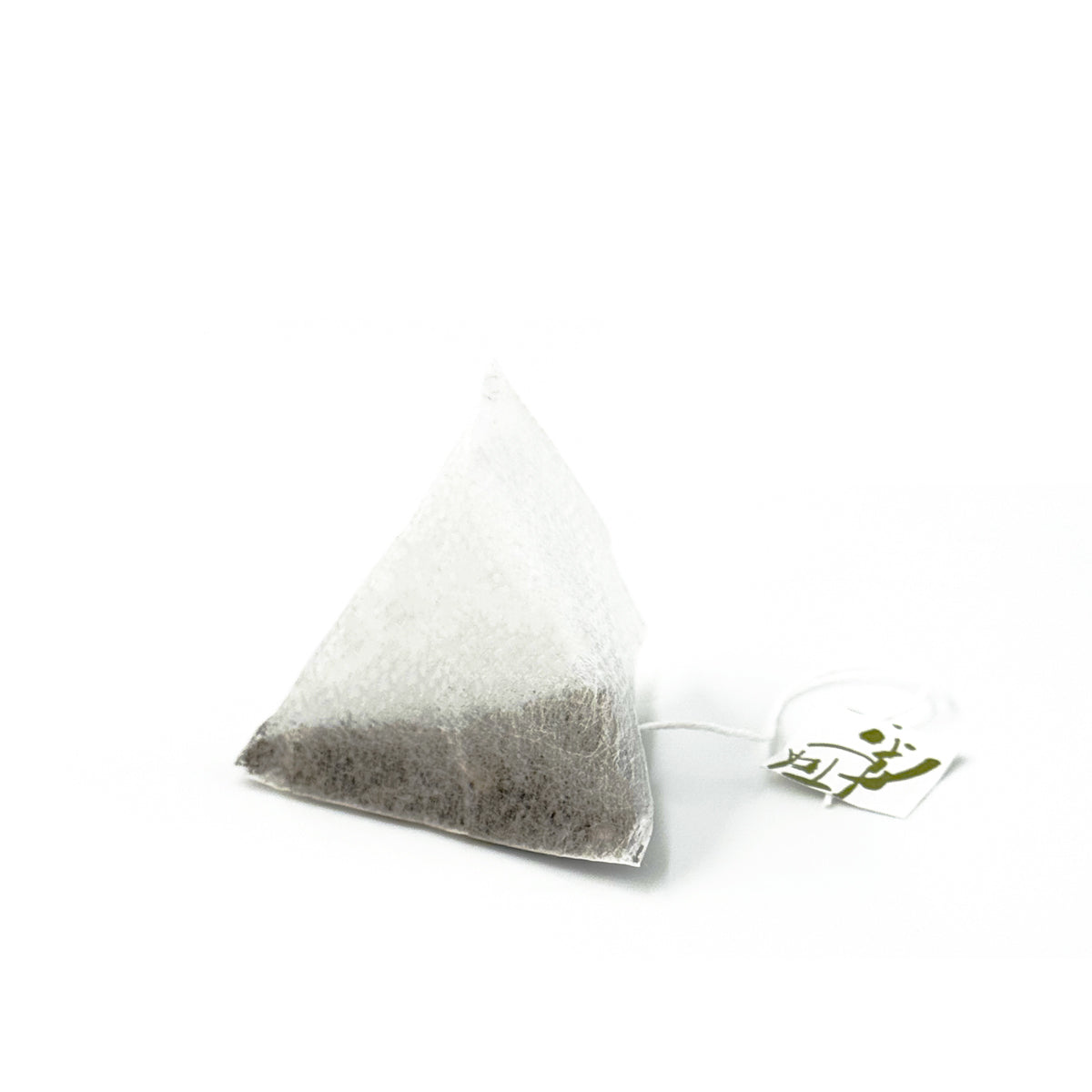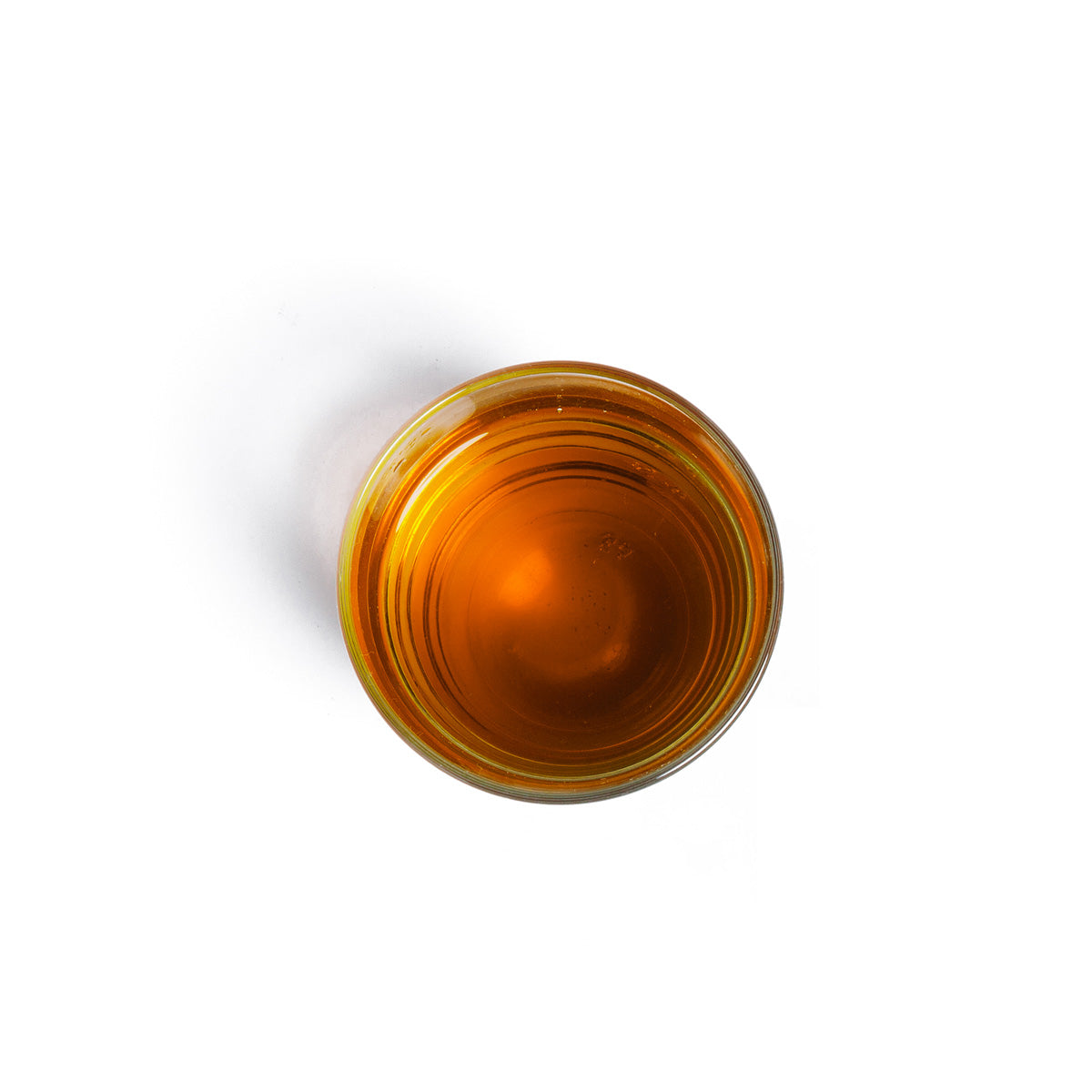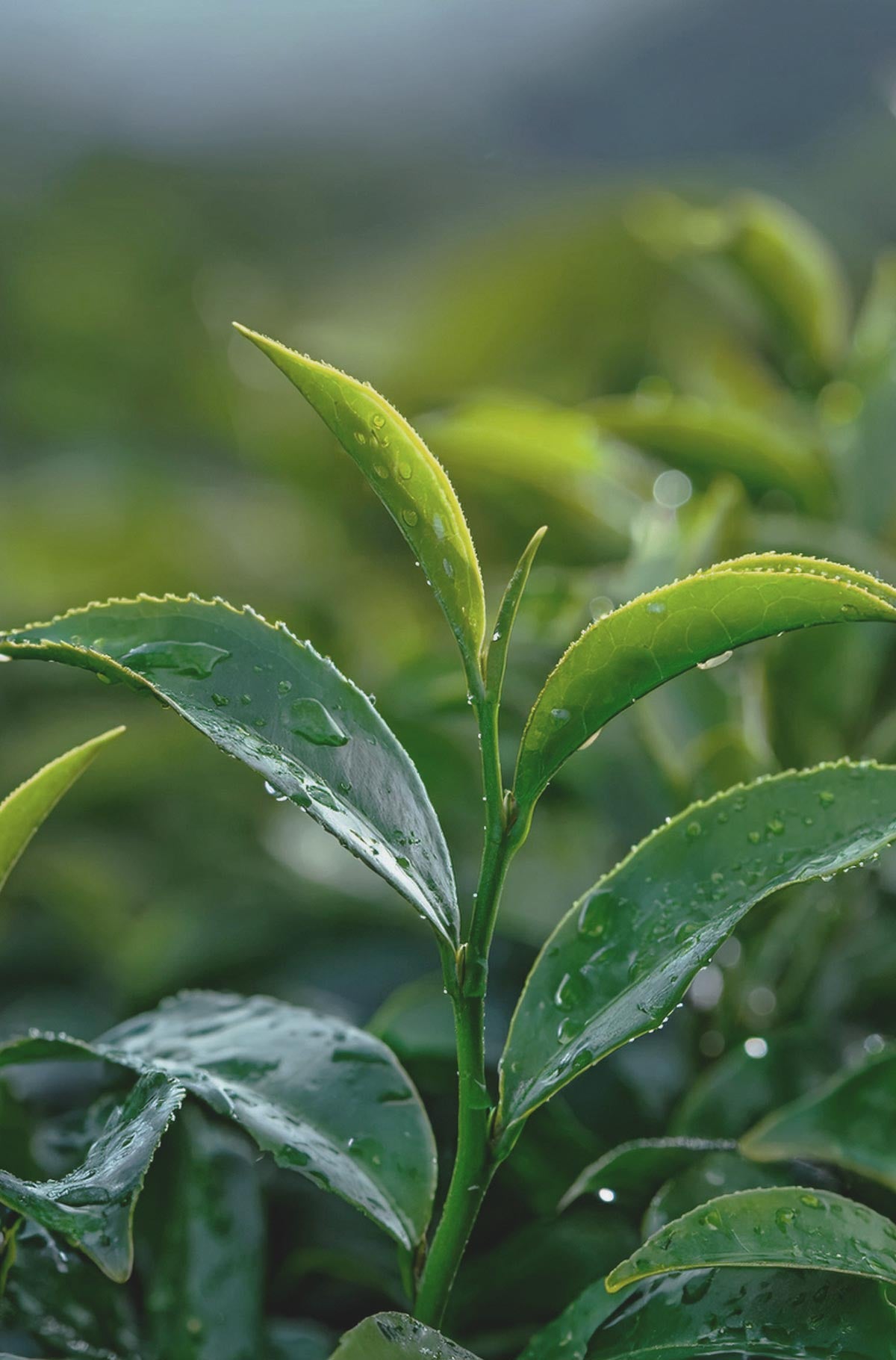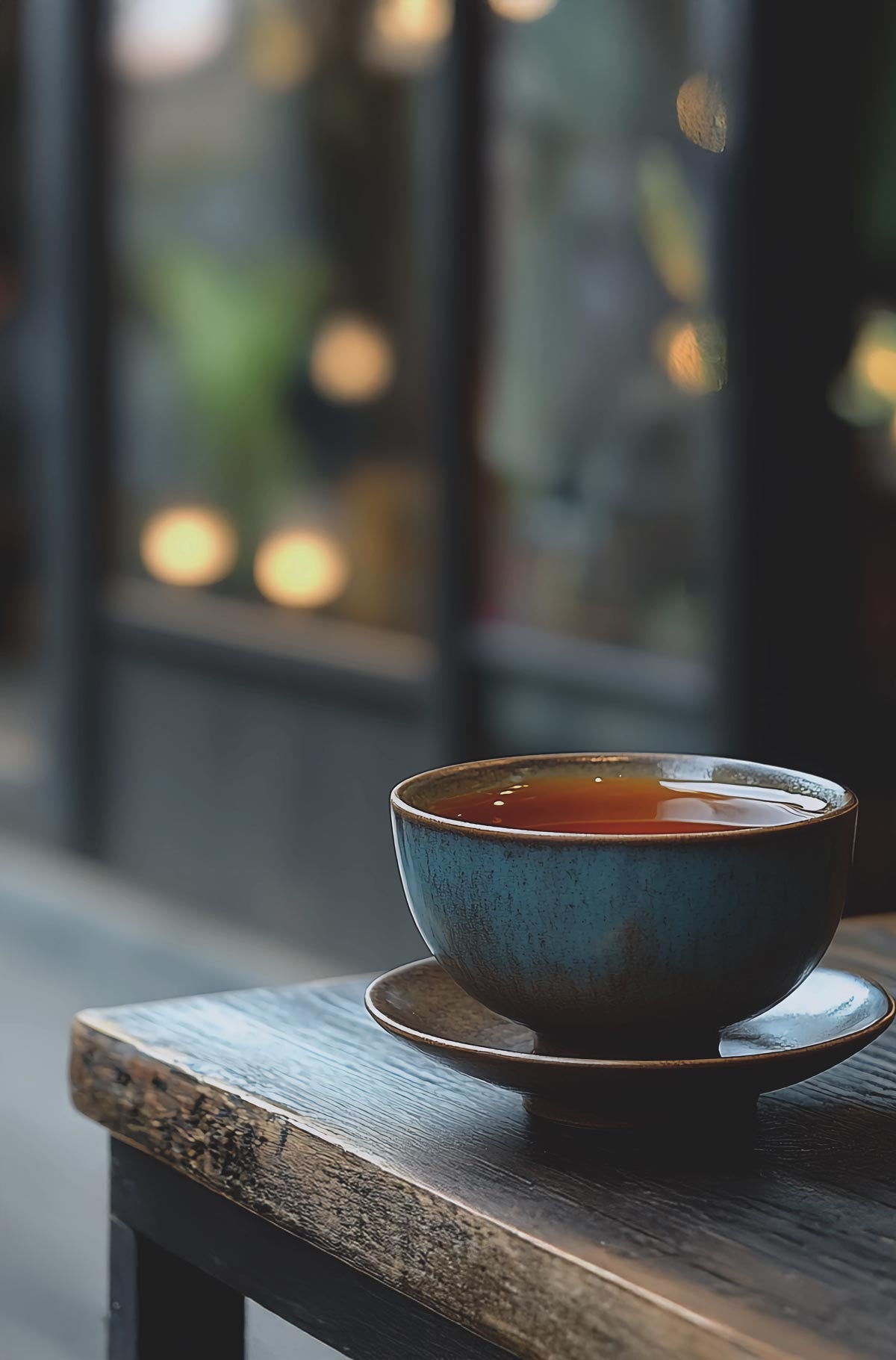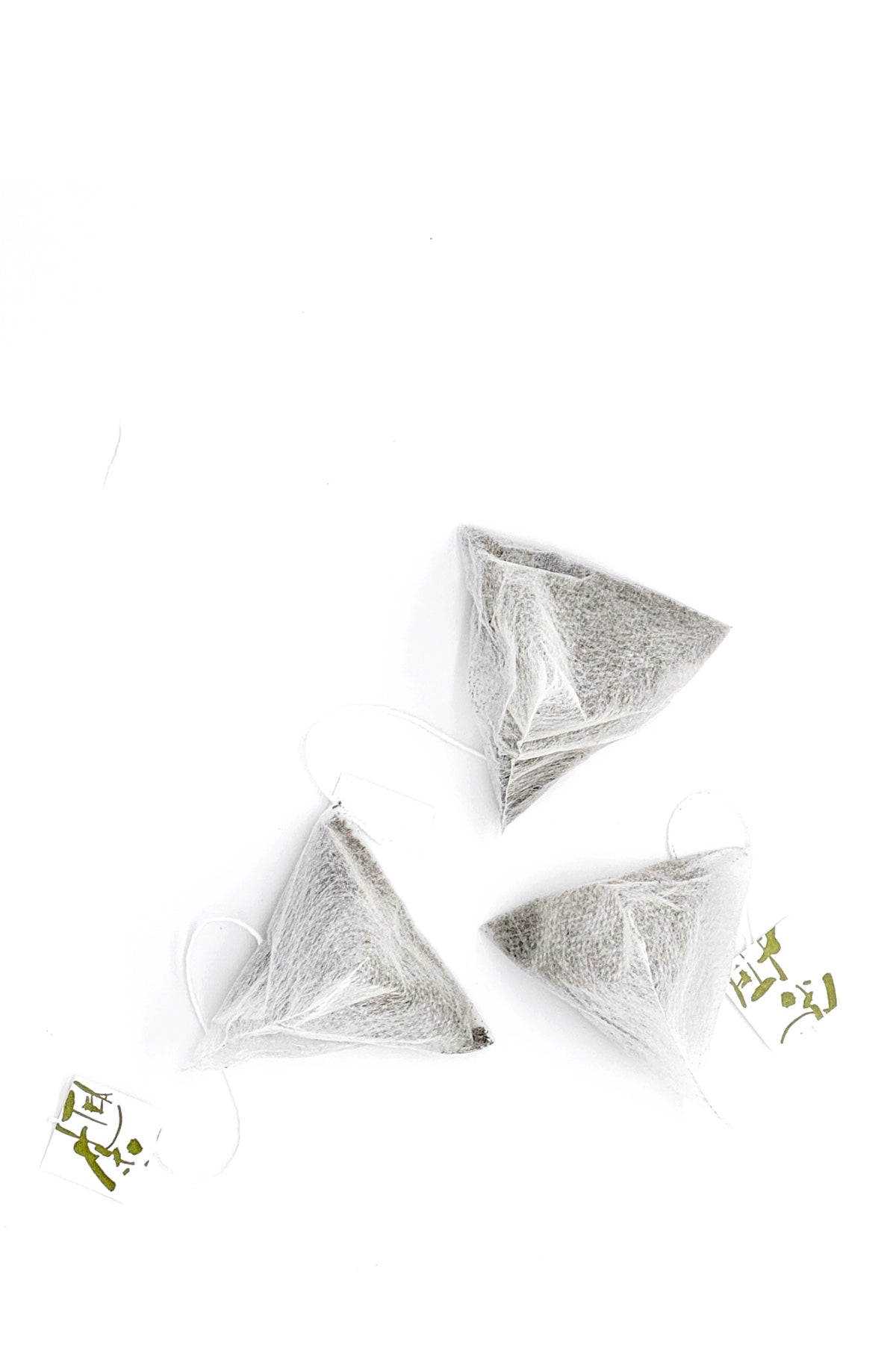Japanese tea culture is rich, diverse, and full of unique flavors that suit every taste and lifestyle. Whether you’re looking for a daily cup to start your morning, a calming brew for the evening, or a special tea to share with guests, there’s something for everyone. At the Japanese Green Tea Company, we take pride in offering a wide range of premium teas directly from Japan’s finest tea farms. In this guide, you’ll discover nine of our most popular Japanese tea types — what makes each special, when to enjoy them, and how to brew them for the best taste.
There are different types of Japanese tea available at the Japanese Green Tea Co.
The above video briefly explains nine of the most popular tea types.
Below is more explanation and link to each of the product mentioned in the video.
- Loose-Leaf Japanese Tea
- 1. Gyokuro Loose Leaf Japanese Green Tea
- 2. Gokuzyo Aracha Loose Leaf Japanese Green Tea
- 3. Nozomi - Covered Tea Loose Leaf Japanese Green Tea
- 4. Hojicha Roasted Japanese Loose Leaf Tea
- 5. Genmaicha Premium Japanese Loose Leaf Tea with Roasted Brown Rice
- Powdered Japanese Tea
First of all, let me cover loose-leaf tea.
For these types, you would be using a teapot or kyusu to steep tea.
Loose-Leaf Tea
1. Gyokuro Loose Leaf Japanese Green Tea
This is such a high-quality tea that it may be a good tea to gift to someone or to treat your guests to.
Gyokuro is a special type of green tea shaded from the sun for 20 days with specially made mats, which allows the caffeine levels to increase in the leaves in addition to allowing the amino acids to get stronger, producing a sweeter and stronger flavor. Because of the cultivation process, the leaves have a very particular odor that is impossible to confuse.
Since the leaves are covered for such a long period of time throughout the cultivation process, the tea leaves are dark, creating a dark tea that is almost mossy green. Its richness in color translates to a richness in taste as well, with layers of flavors that never overpower one another.
Gyokuro is best enjoyed brewed with care at a lower temperature, around 50–60°C (122–140°F), to draw out its delicate sweetness and umami flavour without bitterness. A smaller teapot, or Kyushu, is often used to appreciate its deep aroma and multiple infusions. Many tea enthusiasts recommend savoring Gyokuro slowly, taking time to enjoy its lingering aftertaste and smooth, silky texture—a true treat for special moments or when you want to unwind with a cup of luxury.
2. Gokuzyo Aracha Loose Leaf Japanese Green Tea
This is an economical option for a sencha line, which may be good for an everyday drink, either hot or cold.
"Aracha" translates to "wild tea" in English and is also known as crude tea. Aracha is green tea where the process keeps the original shape as it is cropped, whereas most green teas that are consumed are refined and processed. In Japan, green tea is usually sold from the farmer to a wholesaler, where it gets processed and refined. When the tea is provided to the wholesaler, it is usually unprocessed aracha; this type of green tea is normally not distributed to consumers. However, due to being able to enjoy the rich and natural taste and flavors, some fans prefer drinking this type.
Aracha’s rustic character makes it feel like you’re experiencing tea just as the farmers do on the plantations — fresh, earthy, and full of life. It’s best brewed slightly hotter than Gyokuro, around 70–80°C (158–176°F), to bring out its bold grassy notes and natural sweetness. Many tea lovers enjoy Aracha for its cloudy, vibrant green liquor and its slightly coarse mouthfeel, which reminds you that this tea is as close to the source as it gets. Try it iced in summer for a refreshing twist that highlights its unrefined charm.
This is a type of tea that tea farmers drink, and since it skips the processing, the price is lower. Because of its intense aroma of sencha tea, if you do not like the smell of Japanese sencha tea, you will not like this tea. However, if you like the sencha aroma, you will like this tea very much.
We have loose leaf and teabag versions of this tea as well.
3. Nozomi - Covered Tea Loose Leaf Japanese Green Tea
This tea tastes a lot like Gyokuro tea but is cheaper. So if you want to enjoy the taste of gyokuro at an everyday price, this is a good tea for you.
Nozomi is Kabuse-cha, which translates as "covered green tea" in English.
Just like how we cover tea leaves under turf for gyokuro and matcha, this tea is covered as well but for a shorter duration than gyokuro or matcha; therefore, it is cheaper than conventional gyokuro tea.
Nozomi is a brand of green tea only harvested in Makinohara Plateau, Shizuoka, Japan, by Mt. Fuji. The local authorities of Makinohara City have strict guidelines on how to grow this specific brand to retain the highest quality of this one-of-a-kind green tea species.
Nozomi’s balanced flavor makes it an excellent choice for both daily sipping and special occasions when you want a mellow, umami-rich cup without the premium price tag of Gyokuro. Brew Nozomi at a slightly higher temperature than Gyokuro, about 60–70°C (140–158°F), to unlock its mild sweetness and gentle astringency. Its elegant aroma and bright green liquor pair well with light snacks or traditional Japanese sweets, giving you a moment of calm that feels distinctly Japanese in every sip.
4. Hojicha Roasted Japanese Loose Leaf Tea
If you are sensitive to caffeine like me, you would not be drinking tea at night. But this hojicha may be one that you can drink at night even if you are sensitive to caffeine.
Hojicha is roasted tea, and by going through the roasting process, it removes the caffeine elements and has very low caffeine.
Freshly harvested premium-quality green tea is carefully roasted in porcelain over charcoal for maximum flavor.
Hojicha has lower caffeine and is less bitter than other teas; it is good to take at night for relaxation. Because of the low level of caffeine and soft taste, it is a safe and nutritious tea for kids and pregnant women.
Hojicha’s toasty, comforting aroma and smooth, nutty taste make it a favorite for winding down in the evening or sharing a gentle cup with family. Unlike most green teas, it brews to a warm amber color instead of green, adding to its cozy appeal. For the best flavor, brew Hojicha at around 80–90°C (176–194°F) and enjoy its soothing notes plain or with a light dessert. Many people love it chilled in summer, too — its subtle roasted sweetness shines even when served cold.
5. Genmaicha Premium Japanese Loose Leaf Tea with Roasted Brown Rice
This tea pairs well with Japanese, Asian, or oily food in general, so it is a good tea to have with a meal.
Our premium Japanese green tea is mixed with roasted, popped brown rice. It is also known as "popcorn tea" because the sound of roasting rice sounds similar to the sound of making popcorn.
Genmai-cha is often popular with the elder generation in Japan as it is "milder" than straight steamed green tea and easier on the stomach. Because it is easier on the stomach, this tea is drunk after fasting, whether by religious fasting or after a long period of not eating food.
The brown rice is a high-quality Japanese mochi-gome sticky rice, which adds a premium taste.
This tea is good for someone who loves green tea but has a sensitive stomach.
All the teas mentioned so far are loose-leaf types. Now, I will cover the powdered tea type, for which you do not use a teapot.
Genmaicha’s gentle, nutty taste and light body make it a comforting choice for any time of day, especially alongside hearty or savory dishes. Brew it at about 80°C (176°F) to bring out the roasted rice aroma and the mild green tea notes without bitterness. Its unique blend of green tea and toasted rice gives it a satisfying toasty finish that’s loved by all ages — perfect for anyone new to green tea or those wanting something easy on the stomach yet full of warm, nostalgic flavor.
Powdered Tea
6. Premium Matcha Japanese Powdered Tea
This tea is powdered, and you would be consuming the entire tea leaf rather than steeping it, so you get more health benefits and it is known to give you more focus. So it is a good tea to take in the morning before work or studying. Since it is powdered, it can easily be used for baking or smoothies.
Our premium Japanese matcha is the winner of the 2018 and 2025 Global Tea Championship.
Matcha’s vibrant green color and smooth, creamy texture make it a favorite for traditional tea ceremonies and modern daily rituals alike. Whisked with hot water (around 70–80°C or 158–176°F) using a bamboo chasen, it creates a frothy, velvety drink packed with antioxidants and natural energy. Its bold umami flavor pairs wonderfully with light sweets like mochi or wagashi, and its versatility means you can blend it into lattes, desserts, or even savory dishes for a healthy, flavorful boost.
7. Benifuki Allergy Relief Japanese Green Tea
This tea is good for relieving allergies such as seasonal allergies, cedar allergies, and hay fever.
The study has also shown that benifuki is good for MCAD (Mast Cell Activation Syndrome).
Benifuuki contains high levels of methylated catechins. Methylated catechins inhibit the mast cell response, which leads to preventing allergies and hay fever.
Benifuki is best enjoyed daily during allergy seasons to help manage symptoms naturally. Brew it a bit hotter than delicate green teas — around 80–85°C (176–185°F) — to release its unique catechins and subtle, slightly bitter taste. Many people prefer drinking it plain or with a light snack to balance its refreshing, earthy notes. For best results, make Benifuki part of your routine for a few weeks before peak allergy season, letting its natural benefits build up over time.
We have a powder form, a tea bag, or a candy version.
8. Green Tea With Mikan Japanese Orange
If you like sweet tea, this is the tea for you.
The most luxurious green tea grown in sugarcane is mixed with 100% natural local Japanese orange mikan powder to create a fresh sweet-and-sour flavor.
With a hint of sugar added, this subtle sweetness and sourness will surprise you with freshness.
Simply add the powder to hot or cold water and enjoy. No teapot is required.
This bright, citrusy blend is perfect for anyone who wants a refreshing twist on classic green tea. It dissolves instantly in hot or cold water, making it ideal for busy mornings, lunch breaks, or a sweet afternoon pick-me-up. Many tea lovers enjoy serving Mikan tea iced in summer or even mixing it into sparkling water for a fun, fizzy treat. Its cheerful flavor and gentle sweetness make it a great introduction to green tea for kids or anyone with a sweet tooth.
We also have a lemon version.
9. Japanese Diet Pu-erh Tea
If you want to lose weight, this is the tea for you. This tea is available in teabags.
Japanese Diet Pu-Erh Tea - Saryu Soso, is a national award-winning tea that is good for dieting and skin.
Pu-Erh Tea is Chinese, but this Japanese Pu-Erh Tea uses patented bacteria created by research results from Shizuoka University in Japan to increase polyphenols and gallic acid, which reduce absorption activities in the stomach.
All our premium tea is 100% from Japan, a single-origin cultivar, and grown with sugarcane soil to reduce bitterness and astringency.
This smooth, earthy tea is easy to brew — simply steep a teabag in freshly boiled water for a few minutes to release its mellow, slightly sweet flavor. Many people enjoy a cup after meals to help with digestion and support healthy metabolism. Thanks to its unique fermentation process and patented bacteria, this tea offers a lighter taste than traditional Chinese Pu-erh while still providing the same cleansing benefits. Enjoy it daily as part of your wellness routine to complement a balanced diet and healthy lifestyle.
Conclusion
No matter your taste, mood, or health goals, Japanese green tea offers a world of flavors and benefits to explore. From luxurious Gyokuro for special moments to comforting Hojicha for quiet nights, each cup invites you to slow down and enjoy a centuries-old tradition. We hope this guide helps you find the perfect tea for your daily ritual — and inspires you to brew, sip, and savor every drop.
Get Free Bonus Books

Sign up for free to the Green Tea Club to get advice and exclusive articles about how to choose Japanese Tea, and tips, tricks, and recipes for enjoying Japanese tea.
About the author
Kei Nishida
Author, CEO Dream of Japan
Certification: PMP, BS in Computer Science
Education: Western Washington University
Kei Nishida is a passionate Japanese green tea connoisseur, writer, and the founder and CEO of Japanese Green Tea Co., a Dream of Japan Company.
Driven by a deep desire to share the rich flavors of his homeland, he established the only company that sources premium tea grown in nutrient-rich sugarcane soil—earning multiple Global Tea Champion awards.
Expanding his mission of introducing Japan’s finest to the world, Kei pioneered the launch of the first-ever Sumiyaki charcoal-roasted coffee through Japanese Coffee Co. He also brought the artistry of traditional Japanese craftsmanship to the global market by making katana-style handmade knives—crafted by a renowned katana maker—available outside Japan for the first time through Japanese Knife Co.
Kei’s journey continues as he uncovers and shares Japan’s hidden treasures with the world.
Learn more about Kei









